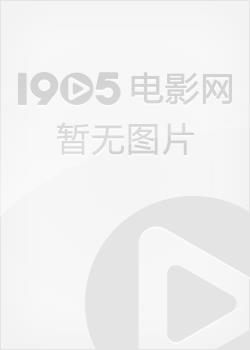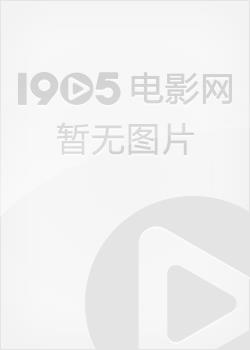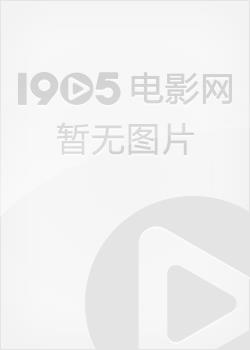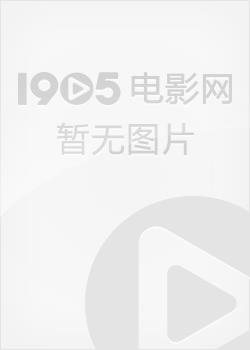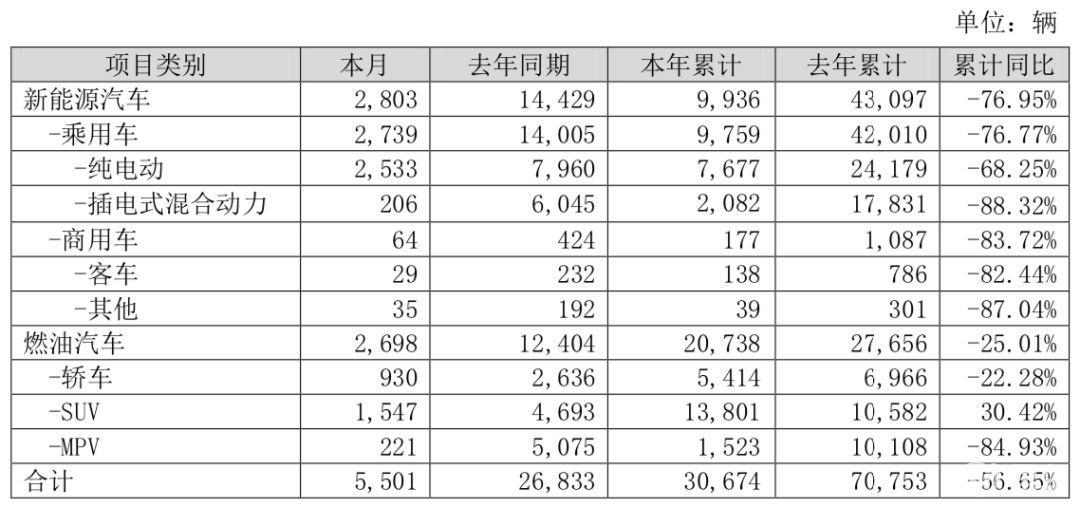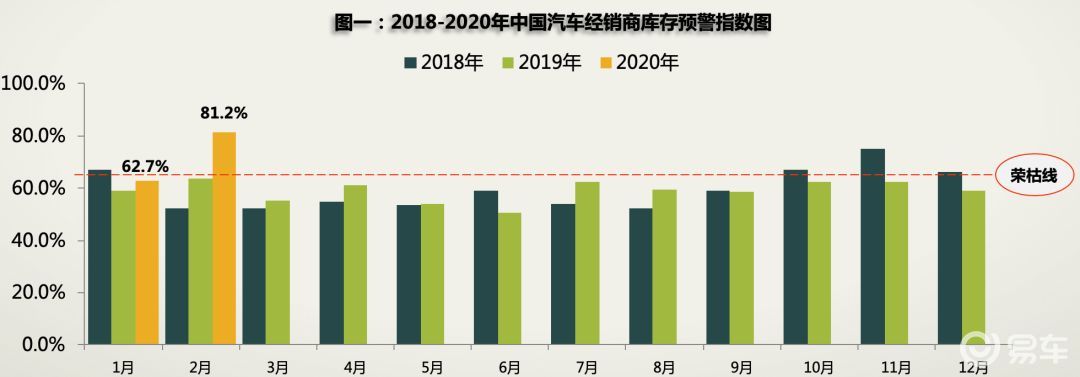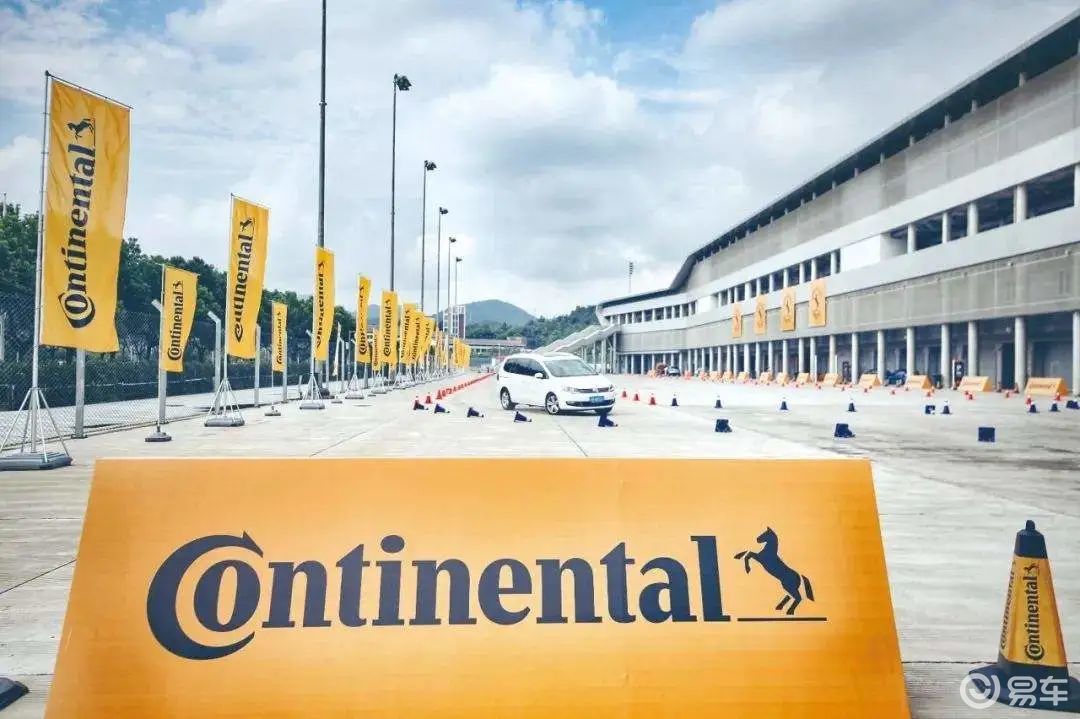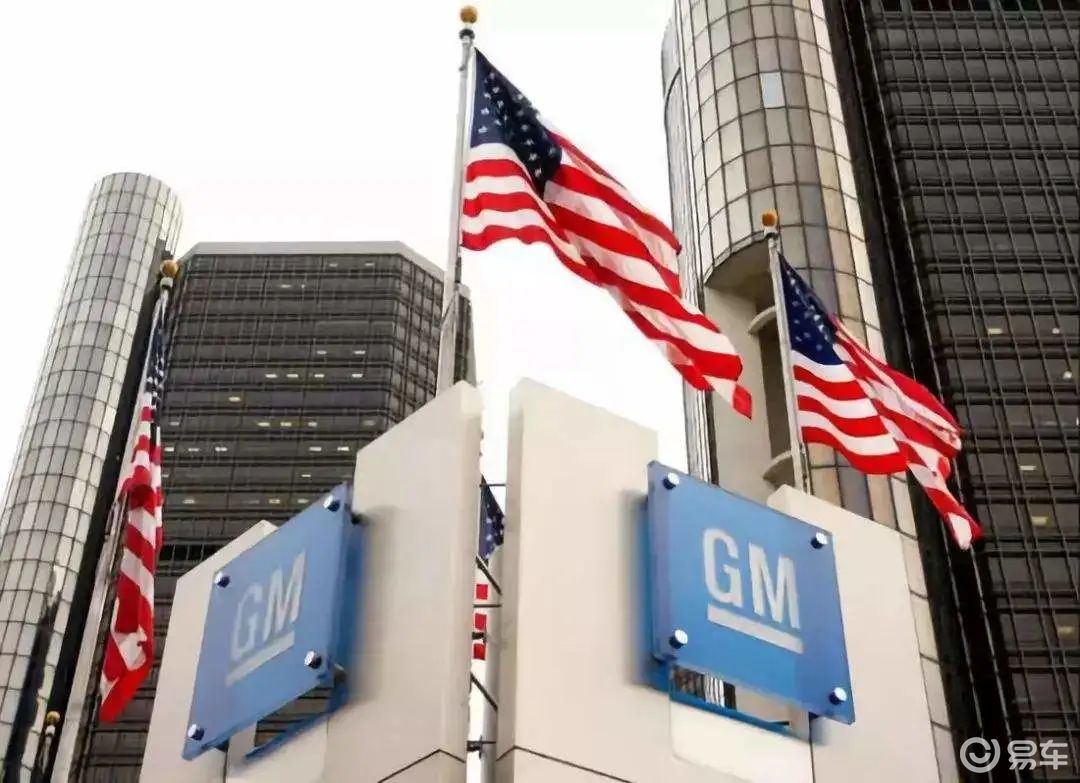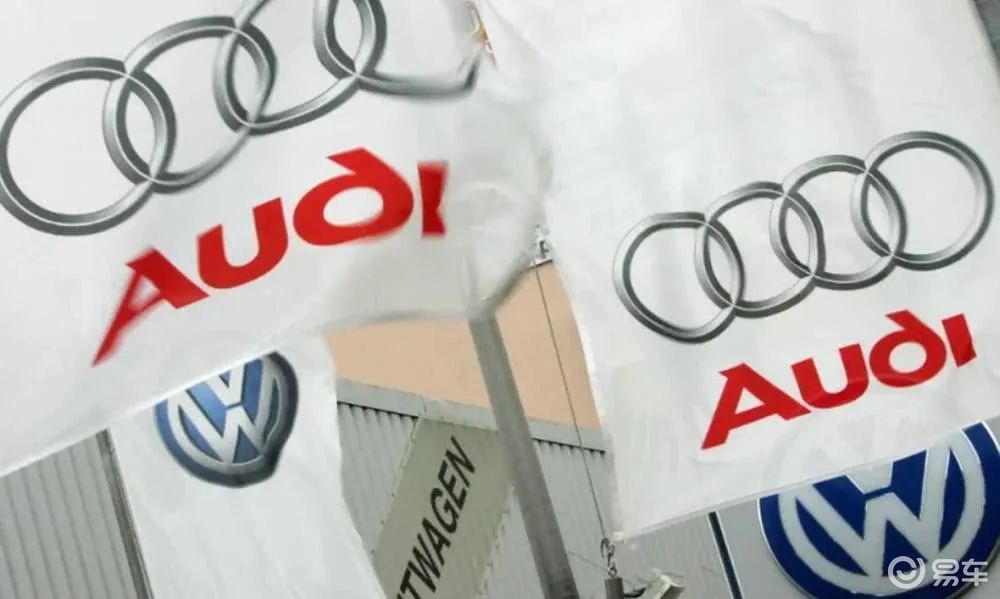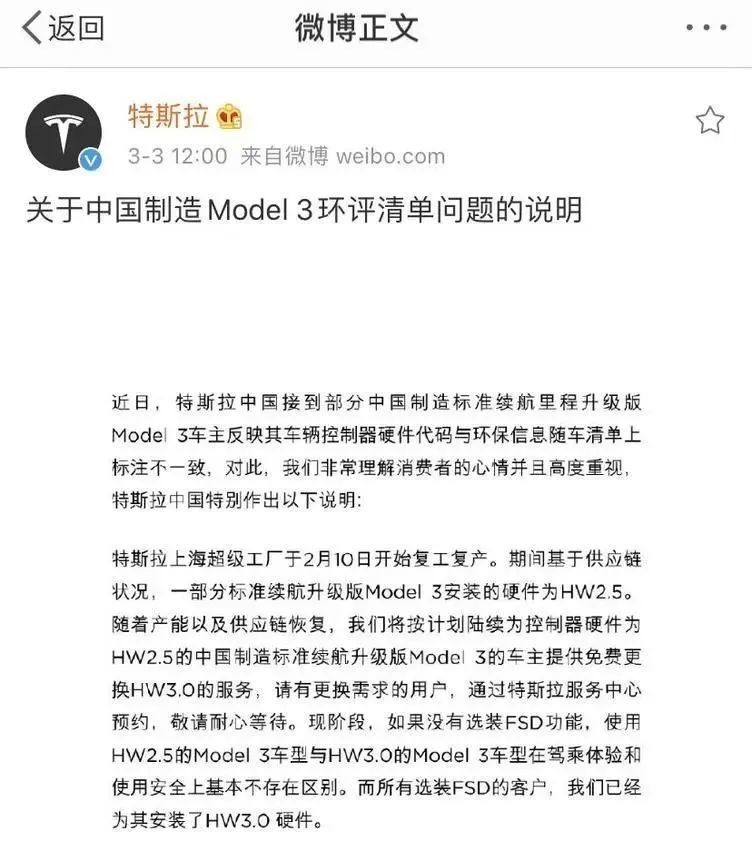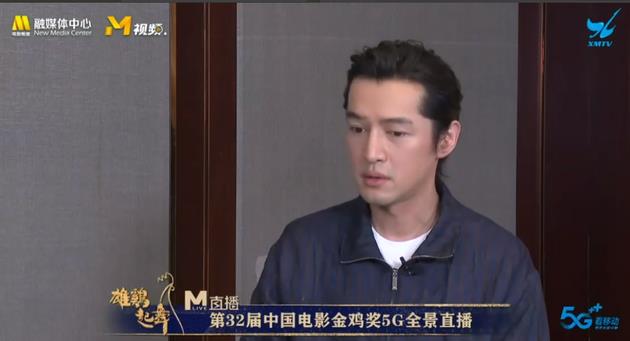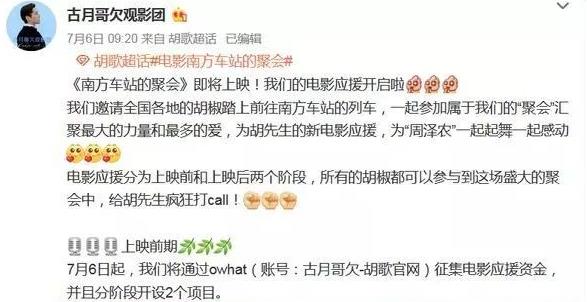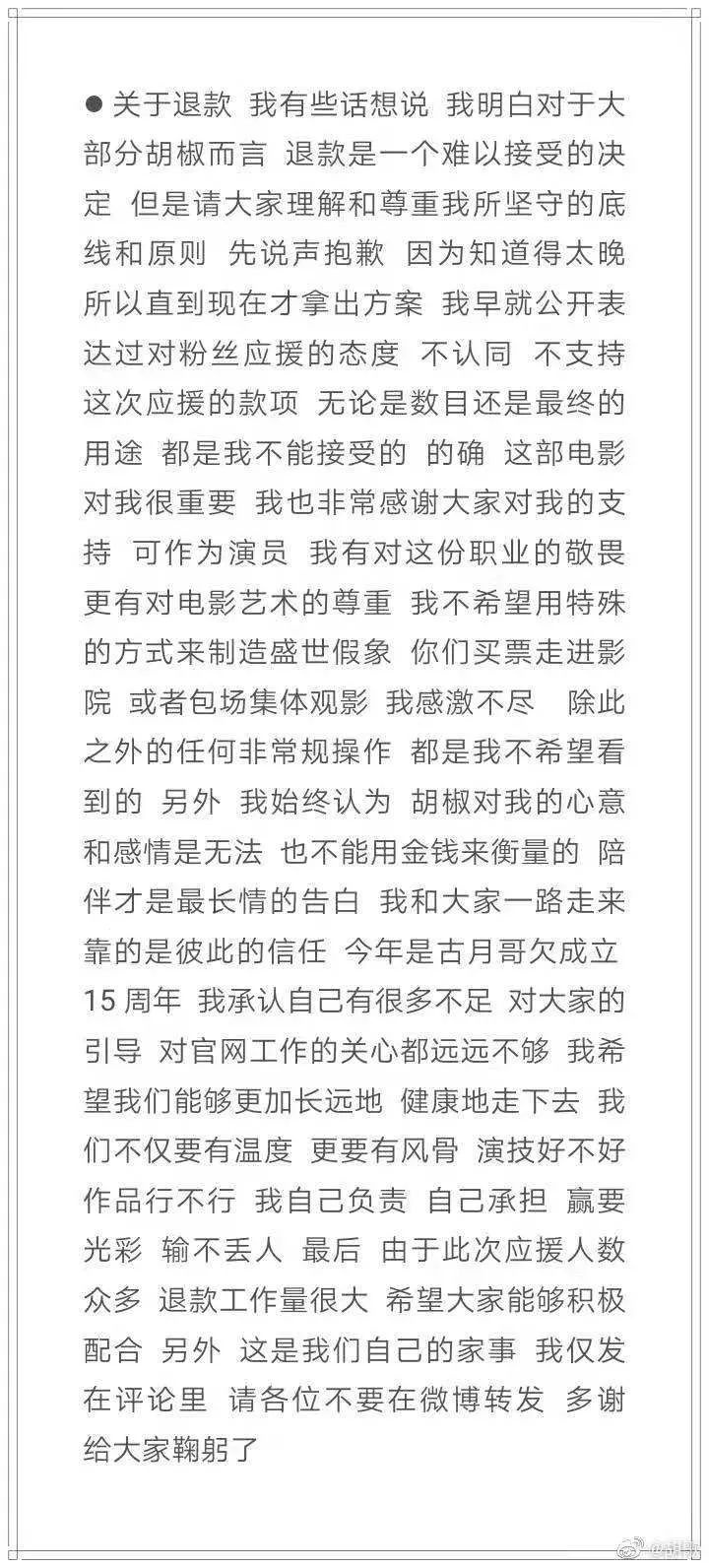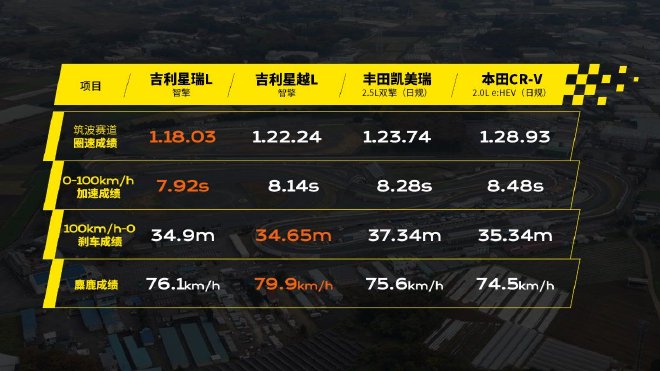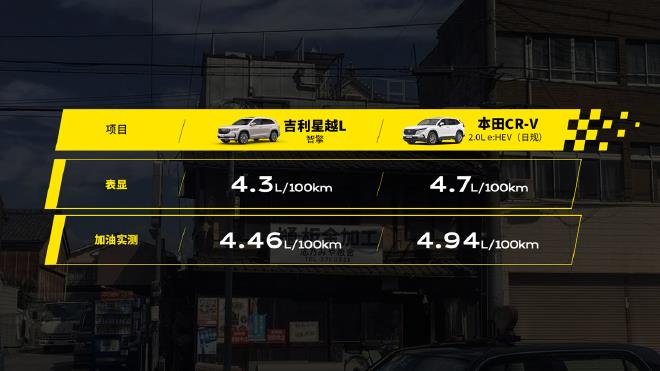This year marks the 40th anniversary of our country’s reform and opening up. The Party Central Committee has decided to commend a group of individuals who have made outstanding contributions to reform and opening up. According to the selection and commendation work arrangement, on the basis of repeated comparisons, organizational inspections, and collective research and recommendation of candidates in various regions and departments, after centralized evaluation and overall consideration, 100 objects to be commended for outstanding contributions to reform and opening up have been produced. In order to give full play to democracy, widely listen to opinions, and accept social supervision, the objects to be commended are now announced. The publicity time is from 8:00 on November 26, 2018 to 17:00 on November 30. If you have any objection to the objects to be commended, please report to the Office of the Central Leading Group for Commendation for Celebrating the 40th Anniversary of Reform and Opening up by phone, mail, letter, etc. during the publicity period (the letter is subject to the postmark on the arrival date)
Telephone: (010) 84233403/84233445
Fax: (010) 84233489
E-mail: ggkf40bz@163.com
Mailing address: No. 3, East Street, Hepingli, Dongcheng District, Beijing
Postal Code: 100013
Office of the Central Leading Group for Celebrating the 40th Anniversary of Reform and Opening Up
November 26, 2018
Yu Min
Yu Min, male, Han nationality, member of the Communist Party of China, born in August 1926 in Ninghe, Tianjin, former vice president and researcher of the Chinese Academy of Engineering Physics, and academician of the Chinese Academy of Sciences. He is a famous nuclear physicist in our country. He has long presided over the theoretical research and design of nuclear weapons, solved a large number of theoretical problems, and made important contributions to the development of nuclear weapons in our country. Since the 1980s, in the development of second-generation nuclear weapons, key technologies have been broken through, which has brought the development of nuclear weapons technology in our country to a new level, and made pioneering contributions to the improvement of our country’s independent scientific and technological innovation capabilities and the enhancement of national defense strength. Won the "Two Bombs and One Star" Merit Medal, the National Highest Science and Technology Award, the "National May Day Labor Medal" and the "National Dedication Model" titles.
Yu Yi
Yu Yi, female, Han nationality, member of the Communist Party of China, born in February 1929, honorary principal of Shanghai Yangpu High School, served as a director of the National Language Society and vice president of the National Middle School Chinese Teaching Research Association. She has long been engaged in the cause of Chinese teaching in middle schools, insisting on teaching and educating people, and promoting "humanism" into the national "Chinese Curriculum Standards". She advocates simultaneous innovation in educational thought and teaching practice, and mainly promotes the Chinese teaching reform experiment in Shanghai junior high schools. She teaches nearly 2,000 exploratory and exemplary open courses above the municipal level, of which more than 50 are recognized as landmark courses for Chinese teaching reform, and writes millions of words of educational writings. Many important ideas have been adopted by the education department, making outstanding contributions to promoting the reform and development of basic education across the country. Known as "a generation of teachers who carefully educate people, a banner for dedicated teaching reform". Won the titles of "National March 8th Red Flag Bearer" and "National Advanced Worker".
The leader of "big bag dry" in Xiaogang Village
In the winter of 1978, 18 farmers in Xiaogang Village, Fengyang County, Anhui Province, with the spirit of daring to be the first in the world, pressed the bright red handprint on the "secret contract" of distributing fields to households, and implemented agricultural "big package", which opened the prelude to our country’s rural reform. The red handprint of these 18 leaders gave birth to the household contract responsibility system, which eventually rose to the basic management system in our country’s rural areas, completely broke the people’s commune system of "one big and two dukes", liberated the rural productive forces, made our country’s agricultural development exceed the long-term shortage state, and solved the problem of farmers’ food and clothing. " As a precious cultural relic of reform and opening up, the contract is displayed in the National Museum, highlighting the historical status of Xiaogang Village as the main birthplace of our country’s rural reform and a symbol of China’s reform.
Ma Wanqi
Ma Wanqi, male, Han nationality, born in October 1919 and died in May 2014, a native of Nanhai, Guangdong, a member of the 6th and 7th National People’s Congress Standing Committee, the 6th National Committee of the Chinese People’s Political Consultative Conference Standing Committee, the 8th, 9th, 10th and 11th National Committee of the Chinese People’s Political Consultative Conference, and the former president of the Macao Chinese General Chamber of Commerce. He proposed to the central government to "actively mobilize overseas Chinese to invest in the motherland" and take the lead in investing and setting up businesses in the mainland. Make full use of his reputation in the overseas Chinese business community, vigorously publicize the national reform and opening up policy, and participated in the organization of Hong Kong and Macao delegations to visit and invest in the mainland on many occasions, making outstanding contributions to promoting economic exchanges and cooperation between Macao and the mainland and supporting reform and opening up. He has firmly supported the principle of "one country, two systems" and served as the deputy chairperson of the Basic Law Drafting Committee of the Macao Special Administrative Region and the deputy chairperson of the Preparatory Committee of the Macao Special Administrative Region. He has played an important role in the smooth return and smooth transition of Macao and the maintenance of Macao’s prosperity and stability. He has won the "China Charity Award" and the "Great Lotus Medal of Honor" of the Macao Special Administrative Region Government.
Ma Yun
Ma Yun, male, Han nationality, member of the Communist Party of China, born in September 1964, from Shengzhou, Zhejiang, chairman of the board of directors of Alibaba (China) Co., Ltd. The Alibaba Group he founded has built the world’s largest e-commerce platform, with an annual transaction volume of trillions of yuan, which has become a huge driving force for domestic demand; created Internet payment and logistics systems, etc., to create commercial infrastructure for small and medium-sized enterprises; established the world’s leading mobile payment network, and established a new social integrity system through big data technology; independently developed the Feitian operating system, laying the foundation for cloud computing in our country; initiated the World Electronic Trade Platform (eWTP), and promoted its inclusion in the G20 Leaders’ Summit Communiqué, becoming an important civil force for practicing the "Belt and Road Initiative". Under his leadership, Alibaba Group has ranked among the top ten global companies in terms of market capitalization, making our country a leader in international competition in the fields of e-commerce, Internet finance and cloud computing, and has led a large number of entrepreneurs and entrepreneurial young people to reform, innovate and forge ahead. Won the title of "Excellent Builder of Socialism with Chinese Characteristics in Zhejiang Province".
Pony Ma
Ma Ma, male, Han, non-partisan, born in October 1971, from Shantou, Guangdong, chairman of the board of directors and CEO of Tencent Technology (Shenzhen) Co., Ltd. Benefiting from the reform and opening up environment, he founded and led Tencent to grow from a small enterprise with only 5 people into one of the most influential Internet companies in the world. He put forward the concept of "Internet +", vigorously promoted Internet applications such as WeChat, QQ, and online payment, and promoted digital transformation and upgrading from the aspects of people’s livelihood and government affairs, daily consumption, production services, life and health, and ecological environmental protection. It has played an important role in the integrated development of the real economy and digital economy, traditional industries and technological innovation. Build a Tencent Foundation platform, advocate the concept of public welfare for the whole people, and create a new pattern of public welfare with wide participation, transparency and credibility through information technology. Won the title of "China’s Outstanding Private Technology Entrepreneur" and "South Guangdong Outstanding Contribution Award".
Ma Shanxiang
Ma Shanxiang, male, Hui, a member of the Communist Party of China, born in November 1955 in Longchang, Sichuan, is the head of the "Lao Ma Studio" of the People’s Mediation Committee of Guanyinqiao Street, Jiangbei District, Chongqing. He loves mass work and is full of feelings for the masses. He always implements the belief of serving the people wholeheartedly, and takes the satisfaction of the masses as the pursuit of value. He has been engaged in grassroots mediation and mass ideological and political work for 30 years. He has summed up the six-character concept of "people-oriented, righteousness and harmony", followed the thirteen essential principles of "emotion, reason, law and affairs", relied on the "3441" guarantee system, and the "Thirty-six Strategies" of Lao Ma. Successfully resolved dozens of major contradictions and disputes, properly handled many unexpected incidents, received more than 20,000 visits, handled more than 1,500 petitions and visits, and the success rate of mediation reached more than 98%, maintaining the harmony and stability of the jurisdiction. Won the titles of "National Advanced Worker" and "National Excellent Communist Party Member".
Wang Daheng
Wang Daheng, male, Han nationality, member of the Communist Party of China, born in February 1915 and died in July 2011, a native of Wuxian County, Jiangsu Province, former honorary director of the Changchun Institute of Optics, Fine Mechanics and Physics of the Chinese Academy of Sciences, academician of the Chinese Academy of Sciences, and academician of the Chinese Academy of Engineering. Under his leadership, he developed the first ruby laser and the first space camera, and presided over the development of our country’s first large-scale light measuring equipment. In March 1986, he proposed the "863" plan together with three other scientists and was approved by the central government. It became a banner for the development of science and technology in our country, and made the development of high technology an important strategic plan for the modernization of science and technology in our country. In 1992, he and other faculty members initiated and promoted the establishment of the Chinese Academy of Engineering. He won the special prize of the National Science and Technology Progress Award, the "Two Bombs and One Star" Merit Medal, and the first "He Liang Heli Foundation Excellence Award".
Wang Shumao
Wang Shumao, male, Han nationality, a member of the Communist Party of China, born in December 1956, is a native of Qionghai, Hainan Province. He is a member of the Discipline Inspection Committee of the Party Branch of Tanmen Village, Tanmen Town, Qionghai City, Hainan Province, and a deputy company commander of the Maritime Militia Company of Tanmen Town. He actively participated in safeguarding territorial sovereignty and maritime rights and interests in the South China Sea, and successively participated in a number of major national maritime-related work to cultivate civil forces for rights protection in the South China Sea. He dared to fight for rights protection in the South China Sea and gave full play to the active role of civil forces. Leading the masses to build big ships and explore the open sea to become rich has become a "two-belt" model of Tanmen Town taking the lead in getting rich and leading the masses
Wang Yongmin
Wang Yongmin, male, Han nationality, member of the Communist Party of China, born in December 1943, Nanzhao, Henan, chairman of Beijing Wangma Innovation Network Technology Co., Ltd. He founded the three principles and mathematical model of Chinese character keyboard design. In 1983, he invented the "Wangma Wubi font" Chinese character input method, and pioneered the "Chinese character root periodic table", which effectively solved the problem of Chinese character input entering the information age. In 1998, he invented the "98 standard Wang code", which is a Chinese character input method that conforms to the national language specification and passed the appraisal earlier, which promoted the popularization of computers in our country. His invention technology has won more than 40 patents in China, the United States, the United Kingdom and other countries. He has won the title of "National Model Worker" and the "National May Day Labor Medal".
Wang Youde
Wang Youde, male, Hui nationality, member of the Communist Party of China, born in September 1953, Lingwu native of Ningxia, former secretary and director of the Party Committee of Lingwu Baijitan National Nature Reserve Administration of Ningxia. He led the staff to vigorously promote sand prevention and control, creating windproof sand-fixing forests 600,000 mu, controlling shifting sand nearly one million mu, effectively preventing the southward and westward expansion of the Mu Us Desert, showing a gratifying situation of people entering and retreating. Exploring the formation of a "wide forest belt, multi-network, multi-tree species, high-density, mixed tree-irrigation" sand prevention and control model has realized the goal of "desert green, field work, and rich employees", providing valuable experience for national sand prevention and control. Won the titles of "National Excellent Communist Party Member", "National Advanced Worker", "National Desert Control Hero" and "National Greening Advanced Worker".
Wang Boxiang
Wang Boxiang, male, Han nationality, member of the Communist Party of China, born in February 1943, Shouguang, Shandong Province, former deputy secretary and mayor of the Weifang Municipal Committee of Shandong Province, and former Shouguang County Party Secretary. During the transition period from a planned economy to a market economy, he adhered to the development of the first priority, took it as his mission to enrich the people and strengthen the county, based on the traditional advantages of Shouguang’s vegetable cultivation, fully supported and promoted Shouguang’s winter warm vegetable greenhouse experiment, vigorously developed Shouguang vegetable wholesale market, and created the country’s famous and largest vegetable wholesale market in Jiangbei. Shouguang vegetable industrialization model was promoted to the whole country, generating huge economic and social benefits. Vigorously promoted Weifang’s agricultural industrialization and industrial shareholding system transformation as well as the development of individual and private economy, and contributed to Weifang’s economic prosperity. Won the title of "National Excellent Communist Party Member".
Wang Qimin
Wang Qimin, male, Han nationality, member of the Communist Party of China, born in September 1937, from Huzhou, Zhejiang, former assistant to the general manager of Daqing Oilfield Co., Ltd. He has always used the "Daqing spirit" and "iron man spirit" to engage in scientific research, daring to challenge the limits of oilfield development; adhering to the belief that "I would rather boil my efforts dry, but also let the oilfield produce stable and then high production", overcome technical difficulties one by one, and set a number of world records. Presided over the research and put forward the theory of "phased and multiple well deployment and adjustment", in which the development and utilization of external surface reservoirs broke the restricted area that cannot be exploited at home and abroad; presided over the research of the "oil stabilization and water control" project in the later stage of high water cut of the oilfield, which made important contributions to the high-yield He is an outstanding representative of a generation of oil people, giving new era connotations to the "iron man spirit". He was awarded the titles of "National Advanced Worker" and "Special Labor Model of Heilongjiang Province".
Wang Xuan
Wang Xuan, male, Han nationality, member of Jiusan Society, born in February 1937 and died in February 2006, native of Wuxi, Jiangsu, former vice chairman of the National Committee of the Chinese People’s Political Consultative Conference, former director of the Institute of Computer Science and Technology of Peking University, academician of the Chinese Academy of Sciences, and academician of the Chinese Academy of Engineering. He presided over the large-scale application of the successfully developed Chinese character laser phototypesetting system and the Founder color publishing system, which realized the technological revolution of our country’s publishing and printing industry "saying goodbye to lead and fire and entering light and electricity", and became a model of independent innovation and high-tech transformation of traditional industries in our country. Committed to the industrialization of research results, he oversaw the development of an electronic publishing system that triggered four technological innovations in the newspaper and printing industries, enabling Chinese character laser phototypesetting technology to occupy 99% of the domestic newspaper industry and 80% of the overseas Chinese newspaper market. Established the "Wang Xuan Science and Technology Innovation Fund" to support and encourage young scientific and technological workers to carry out scientific and technological innovation research. Won the National Highest Science and Technology Award.
Wang Kuancheng
Wang Kuancheng, male, Han nationality, born in June 1907 and died in December 1986, native of Ningbo, Zhejiang, founder of Wang Kuancheng Education Foundation, former chairman of the Chinese General Chamber of Commerce in Hong Kong, and member of the 6th National Committee of the Chinese People’s Political Consultative Conference. He is an outstanding representative of the Hong Kong business community who loves the country and loves Hong Kong, and fully supports the reform and opening up of the mainland. He promoted the establishment of the China "Four Modernizations" Service Committee of the Chinese General Chamber of Commerce in Hong Kong, publicized the national reform and opening up policy, and built a platform for Hong Kong business people to participate in the reform and opening up of the mainland. It inspired the patriotic enthusiasm of Hong Kong, Macao and overseas Chinese, and played a leading role in their return to the motherland. Funded the establishment of the "Wang Kuancheng Education Foundation Resolutely supporting the "one country, two systems" policy, he served as the deputy director of the Executive Committee of the Basic Law Advisory Committee of the Hong Kong Special Administrative Region and participated in the drafting of the Basic Law of the Hong Kong Special Administrative Region. Asteroid No. 4651 was named "Wang Kuancheng Star".
Wong Ka Fook
Wang Jiafu, male, Han nationality, member of the Communist Party of China, born in February 1931 in Nanchong, Sichuan, former director of the Institute of Law of the Chinese Academy of Social Sciences, and a member of the 9th National People’s Congress Standing Committee. He participated in the drafting and formulation of many important civil and commercial laws such as the General Principles of Civil Law, Company Law, and Property Law, and played an important role in promoting the development of China’s civil and commercial legislation. He put forward the basic concept of the legal system of the socialist market economy, and put forward the concept of governing the country according to law earlier, which has played a positive role in promoting the construction of the rule of law and the prosperity of law since the reform and opening up. Enjoy the special government allowance of the State Council. Won the special contribution award of the first "China Legal Excellence Achievement
Wang Ying
Wang Ying, female, Hui, a member of the Communist Party of China, born in November 1961 and died in November 2008. She was a native of Bazhong, Sichuan Province. She was a former member of the Standing Committee of the Party Committee and former secretary of the Commission for Discipline Inspection in Nanjiang County, Bazhong City, Sichuan Province. She has worked hard on the front line of discipline inspection and supervision for 20 years, exploring the "Five Zero" work method of innovating discipline inspection and supervision work to serve the people with zero distance, zero estrangement between cadres and the masses, zero gap in supervision and supervision, zero shelving of case investigation and handling, and re-shaping the image of zero starting point. She strictly supervises discipline and accountability, resolutely safeguards party discipline and the authority of the state law, and creates a good environment with clean and upright atmosphere. She is loyal to the party and dedicated herself to fighting lung cancer until the last moment of her life. She has interpreted the purpose of serving In 2009, the TV drama "Red Leaves in the Far Mountains" and the large-scale drama "Journey of Red Leaves" based on her deeds aroused strong repercussions in the whole society. She was awarded the title of "Advanced Worker Model of the National Discipline Inspection and Supervision System" and posthumously awarded the title of "National Excellent Communist Party Member" and "National March 8th Red Banner Bearer".
Wei Changjin
Wei Changjin, male, Han nationality, member of the Communist Party of China, born in November 1965, a native of Nanjing, Jiangsu Province, and a political commissar of the Zaozhuang Military Sub-district in Shandong Province. He participated in the border self-defense counterattack. When shrapnel hit his left eye, penetrated his right chest, and injured 22 parts of his body, he shouted "For the motherland, for victory, fire at me", guided the artillery to repel the enemy 8 times, and held the position alone for 11 hours. Due to his heavy injuries, he was in a coma for 7 days and 7 nights. He was blind in his left eye and made great sacrifices to defend the peaceful environment of reform and opening up. After returning from the battlefield, he never forgot his original intention. He volunteered to make more than 500 performance reports and lectures, and used his own experience to carry forward the main theme and convey positive energy. Awarded titles such as "August 1st Medal" and "Battle Hero" and "National Self-improvement Model".
Wei Huanneng
Wei Huanneng, male, Zhuang nationality, member of the Communist Party of China, born in April 1942, from Hechi, Guangxi, was the former deputy director of the village committee of Hechi Village, Pingnan Township, Yizhou District, Hechi City, Guangxi Zhuang Autonomous Region. In 1980, he organized the villagers of the original Hechi Brigade to break through the shackles of the system and directly elect the villagers’ committee by secret ballot, and was elected as the director of the villagers’ committee. This is the first villagers’ committee in our country, which took the lead in implementing villagers’ autonomy. A series of management systems explored by the villagers’ committee, such as village rules and people’s contracts, election methods, and meeting systems, have made important explorations for the establishment of a grass-roots mass autonomy system. Hechi Village was awarded the title of "National Demonstration Village of
Ju Xiaolin
Ju Xiaolin, male, Han nationality, member of the Communist Party of China, born in September 1962, from Qishan, Shaanxi, a technician of China Railway Electrification Bureau Group 1 Company, and vice chairman of the All-China Federation of Trade Unions (part-time). Since joining the work in 1987, he has studied hard, studied hard, and been brave in innovation, and has mastered a large number of new knowledge and new skills required for the construction of railway contact networks. He has successively participated in the construction of more than 10 national railway key projects such as the Daqin Line, the Beijing-Zheng Line, the Harbin-Dalian Line, and the Beijing-Shanghai High-speed Railway. He has innovated 114 construction methods. He has edited the "Experience and Methods of Catenary Network Construction" and distributed it to thousands of catenary workers as a reference book. He grew from an ordinary migrant worker to a knowledge worker, singing the main theme of the reform and opening up era of "glorious labor, noble knowledge, precious talents, and great creation". He won the title of "National Labor Model" and the "China Skills Award" and "National May Day Labor Medal".
Kong Fansen
Kong Fansen, male, Han nationality, member of the Communist Party of China, born in July 1944 and died in November 1994, a native of Liaocheng, Shandong. Former secretary of the Ali District Committee of the Tibet Autonomous Region and former chairman of the Chinese People’s Political Consultative Conference. Beginning in 1979, he went to Tibet twice to work hard for the people, promoting local economic and social development and ethnic unity. At the end of 1992, Kong Fansen was appointed secretary of the Ali District Committee after his second assistance to Tibet. In order to find out the situation and explore the way to lead the people to poverty reduction and wealth, he traveled 98 of 106 townships in the region, covering more than 80,000 kilometers, and forged a deep friendship with the Tibetan people. He was called "Lei Feng in the new era" and "Jiao Yulu in the 1990s". His heroic deeds and lofty spirit inspired and influenced the vast number of Chinese sons and daughters to join the cause of reform and opening up, spontaneously go to the places where the motherland and the people need it most, and go to the most difficult and difficult places to start businesses. He was awarded the title of "National Model of National National Unity and Progress" and posthumously awarded the title of "Model Communist Party Member and Excellent Leading Cadre".
Li Yining
Li Yining, male, Han nationality, member of the Communist Party of China and member of the Democratic League, born in November 1930, Yizheng, Jiangsu, honorary dean and professor of Guanghua School of Management, Peking University, former vice chairman of the Central Committee of the Democratic League, member of the Seventh, Eighth and Ninth National People’s Congress Standing Committee, member of the Tenth, Eleventh and Twelfth National Committee of the Chinese People’s Political Consultative Conference Standing Committee. He was one of the earliest scholars in our country to put forward the theory of shareholding system reform, participated in the promotion of the reform of the property rights system of state-owned enterprises in our country, presided over the drafting of the Securities Law and the Securities Investment Fund Law, and participated in the promotion of the introduction of 36 non-public economy and 36 new non-public economy, which had an important impact on the reform and development of our country In addition, he has made outstanding contributions to the reform of the state-owned forest tenure system, the reform of the state-owned agricultural reclamation economic system, and the development of low-carbon economy. He won the first prize of the 6th and 7th Ministry of Education Scientific Research Outstanding Achievement Awards (Humanities and Social Sciences).
Ye Cong
Ye Cong, male, Han nationality, member of the Communist Party of China, born in November 1979, from Huangpi, Hubei Province, deputy director of the 702 Research Institute and director of the Underwater Engineering Research and Development Department of China Shipbuilding Industry Group Co., Ltd., the chief diver of the "Jiaolong" deep-sea manned submersible, and the chief designer of the all-sea manned submersible. He has been engaged in the research, design and research and development of manned submersibles for a long time, and through unremitting efforts, he finally turned the "Jiaolong" from a drawing to a reality. Out of his love for manned deep diving, he took the initiative to shoulder the burden of the test pilot and participated in the "Jiaolong" deep diving operation as the main pilot for a total of 50 times, with a maximum diving depth of 7062 meters. As a representative of manned deep diving since the reform and opening up, he is a role model for young people to make meritorious contributions and serve the motherland. He won the honorary title of "Manned Deep Diving Hero" and the "National May 1st Labor Medal" and "China Youth May 4th Medal".
Shen Jilan
Shen Jilan, female, Han nationality, member of the Communist Party of China, born in December 1929, from Pingshun, Shanxi Province, deputy secretary of the General Party Branch of Xigou Village, Pingshun County, Shanxi Province, former director of the Shanxi Provincial Women’s Federation, former deputy director of the Standing Committee of the People’s Congress of Changzhi City, and former deputy secretary of the Pingshun County Party Committee. Since the reform and opening up, she has continuously explored the development path of mountainous areas, comprehensively developed agriculture, forestry, animal husbandry and by-production, led Xigou Village in Pingshun County to govern mountains and ditches, start enterprises and set up factories, chase the tide of the market economy, and strive to build a well-off new village. The development of Xigou Village has always been at the forefront of Shanxi. She is the only representative of the National People’s Congress to be re-elected for the 13th term, and her original intention remains unchanged and unswerving. She
Shi Jiuyong
Shi Jiuyong, male, Han nationality, member of the Communist Party of China, born in October 1926 in Ningbo, Zhejiang Province, former legal advisor of the Ministry of Foreign Affairs, and former president of the United Nations International Court of Justice. He has worked on the front of diplomacy and international law for a long time, and has done a lot of work to safeguard national sovereignty, security, development interests and international fairness and justice. He participated in the negotiations between China and the United Kingdom on the Hong Kong issue throughout the process, and participated in the design of a series of groundbreaking legal system arrangements, contributing to the smooth transition and smooth return of Hong Kong. During his tenure as a member of the United Nations International Law Commission and a judge of the International Court of Justice, especially the president, he performed his duties with superb knowledge, fairness and diligence, winning widespread praise from the international community and the international legal community, and winning glory for the country and the nation. After stepping down as president of the International Court of Justice, at the age of
Ran Shaozhi
Ran Shaozhi, male, Han nationality, member of the Communist Party of China, born in May 1953, Fengjie, Chongqing, former deputy director of the Immigration Bureau of Fengjie County, Chongqing. As a grass-roots cadre who has been working on the front line of immigration for a long time, he cares about the overall situation of the country and the interests of immigrants, does a good job in the ideological and political work of immigration in depth and detail, and implements the issues of immigration production and living resettlement. Actively involved in the construction of the Three Gorges Reservoir Area, and successfully created the resettlement model of "one road by the river, one row of houses by the roadside, industry and commerce in front of the house, and planting fruit and grain behind the house", which established a model for the resettlement of rural immigrants in Chongqing and vigorously promoted Boldly explore the diversified development pattern of the Three Gorges Reservoir Area, lead the masses to build new drinking water and irrigation water storage projects for humans and animals, build drainage weirs and immigration roads, develop orchards and cultivated land, and successfully complete the internal security task of the Three Gorges immigrants. Won the titles of "National Advanced Worker", "National Excellent Communist Party Member" and "People’s Satisfied Civil Servant".
wrap up the sails
Bao Qifan, male, Han nationality, member of the Communist Party of China, born in February 1951, former vice president of Shanghai International Port (Group) joint stock company and former director of the technology center. He is the epitome of Chinese workers who grew up with reform and opening up. Research and development of new grab and process systems have promoted the mechanization of port loading and unloading, and is known as the "Grab King". Participated in the opening of the first domestic trade standard container route in Shanghai Port, participated in the construction of our country’s first automated unmanned container yard, and actively promoted the development of our country’s first set of bulk mine loading and unloading equipment system with the highest degree of automation. He led the formulation of international standards for container-RFID freight tag systems. Over the past 40 years, he has led the team in technological innovation, won 3 National Invention Awards, 3 National Science and Technology Progress Awards, and 36 Gold Awards at international invention exhibitions such as Paris and Geneva. He has won the title of "National Model Worker" for five consecutive years and the title of "National Excellent Communist Party Member".
**** Thondup
Nyima Dhondup, male, Tibetan, member of the Communist Party of China, born in June 1965, secretary of the party branch of Sogu Village, Wuma Township, Changze County, Ali Prefecture, Tibet Autonomous Region. He gave full play to the role of "leading geese" and "vanguard", and promoted ethnic unity by leading by example. He led the masses to participate in the operation of cooperatives through the "four shares" of livestock shares, labor shares, joint herding, and pasture circulation; integrated resources to promote the large-scale development of the village’s collective economy, explored and summarized the "six unified" operation mode of "unified arrangement of labor force, unified management of pastures, unified purchase and sale of animal products, unified distribution of operating income, unified support for the elderly without labor force and widows, and unified scoring of school students." It promoted the "joint production" and "joint stock" of herders and village business entities, and enhanced the villagers’ collective consciousness, cooperative consciousness, and market consciousness. It realized the transformation from extensive management in the past to intensive management. His successful experience is of great significance for promoting the development of the collective economy in pastoral areas in a large-scale, organized and market-oriented manner.
Ting Battle
Ting Bartel, male, Mongolian, member of the Communist Party of China, born in June 1955, native of Hohhot, Inner Mongolia, former secretary of the Party Branch of Sarulatuya Gacha, Hunger Gaole Town, Abaga Banner, Xilin Gol League, Inner Mongolia Autonomous Region. In 1974, he came to Sarulatuya Gacha, Hunger Gaole Town, from Hohhot City, and became an ordinary herdsman. Continuously explore the combination of grassland ecological protection and economic development, lead herdsmen to plan rotational grazing, build grasslands, actively adjust the herd structure, and carry out fine and scientific breeding. The per capita net income of herdsmen has increased from 40 yuan 40 years ago to 18,800 yuan now. Grasslands have been reasonably protected and utilized, achieving a win-win situation between ecological protection and herdsmen’s income. Won the titles of "National Labor Model", "National Excellent Communist Party Member", "National National National Unity and Progress Model Individual" and so on.
Liu Hanzhang
Liu Hanzhang, male, Han nationality, member of the Communist Party of China, born in July 1936 and died in November 2009, Gongyi, Henan, former chairman and general manager of Handan Iron and Steel Group Co., Ltd. At the beginning of reform and opening up, he was sharp-minded and seized the opportunity to start the reform of Handan Iron and Steel’s leadership system and the reform of the labor and personnel distribution system. In the 1990s, he introduced the market mechanism into the internal operation and management of enterprises, and seized the "bull’s nose" of cost management. Established and implemented the "simulated market accounting and cost veto" operation mechanism, reversed the passive situation of Handan Iron and Steel, and achieved leapfrog development. The total profit remained among the top three in the same industry in the country for four consecutive years, and ranked first in Hebei Province for eight consecutive years. " Handan Iron and Steel Experience "has set off a revolution in the country’s enterprise management model, and more than 20,000 enterprises and institutions have come to Handan Iron and Steel to learn from it, which is known as our country’s" red flag on the industrial front "and has become the second industrial learning model promoted in the country after Daqing. Won the title of" National Labor Model ".
Liu Yonghao
Liu Yonghao, male, Han, mass, born in September 1951, from Xinjin, Sichuan, chairman and president of Sichuan New HOPE Group Co., Ltd., member of the 9th and 10th Standing Committees of the National Committee of the Chinese People’s Political Consultative Conference, and vice chairman of the 7th and 8th All-China Federation of Industry and Commerce. In 1982, he devoted himself to the field of agriculture and developed the first domestic suckling pig feed in 1987. He led the company not to forget its original intention, but to move forward and continue to expand. At present, its products cover feed production, agricultural technology, food processing, financial services and many other fields. It has more than 600 branches (subsidiaries) in more than 30 countries and regions around the world, with nearly 70,000 employees and annual sales revenue of over 100 billion yuan. It has been rated as "Top 500 Chinese Enterprises" for 14 consecutive years. Actively participate in public welfare undertakings and propose to launch "China’s glorious cause". Launch the "1 + 1" action of targeted poverty alleviation, and widely carry out industrial poverty alleviation and education for poverty alleviation. Won the titles of "National Model Worker" and "National Poverty reduction Dedication Award".
Xu Lirong
Xu Lirong, male, Han nationality, member of the Communist Party of China, born in July 1957 in Yancheng, Jiangsu, is the party secretary and chairman of China Ocean Shipping Group Co., Ltd. During his tenure as the first president of the Shanghai Shipping Exchange, he created our country’s first national-level water transportation trading market and became the earliest shipping trading window opened to the outside world in our country. In 2016, he successfully led the reform and reorganization of the world’s largest shipping enterprise, directly planned and commanded the reform of COSCO’s container freight system, led the development of China’s container transportation industry, strongly promoted China’s foreign trade transportation reform, and built a bridge for more Chinese enterprises to "go global". Actively implement the task of building the "Maritime Silk Road", explore new models of international cooperation, accelerate the international operation of the terminal industry, and strive to build a marine transportation channel and logistics channel for China to integrate into the global economy, providing a strong guarantee for the construction of the "Belt and Road Initiative". Won the "National May Day Labor Medal".
Xu Zhenchao
Xu Zhenchao, male, Han nationality, member of the Communist Party of China, born in January 1950, Rongcheng, Shandong, senior manager of solid machinery of Qingdao Qianwan Container Terminal Co., Ltd., former vice chairman of the All-China Federation of Trade Unions (part-time), member of the 11th and 12th National People’s Congress Standing Committee. He based himself on his job, did one line, loved one line, and excelled in one line. He was self-taught, practiced his skills hard, and practiced unique skills such as "one hook quasi", one hook net "and" silent operation ". He broke the world record for container loading and unloading seven times in succession, making" Zhenchao efficiency "world-renowned. Be brave in innovation and dare to explore, lead the team to actively carry out scientific and technological research, continue to solve safety production problems, fill the international technology gap, and save huge costs for the country. He created the "Zhenchao Work Method" in his work, which provided valuable experience for the accelerated construction and development of Qingdao Port. Under his inspiration, the majority of young workers across the country have set off a boom in based on their positions and learning skills. They have been awarded the titles of "National Labor Model" and "National Excellent Communist Party Member".
Xu Haifeng
Xu Haifeng, male, Han nationality, member of the Communist Party of China, born in August 1957, from Quanjiao, Anhui Province, former deputy director of the bicycle fencing sports management center of the General Administration of Sports. In 1984, he won the championship of the men’s self-selected pistol 60-round slow-fire in the 23rd Olympic Games, achieving the "zero breakthrough" in the gold medal list and medal list in the history of our country’s Olympic Games. He is the first athlete in the history of sports shooting to combine Olympic champion, world championship, Asian Games champion, Asian Championship champion and other honors. After changing to coach, he innovated training methods and successively trained many Olympic champions and world champions, known as "Gold Coach". Won the titles of "Advanced Worker of the National Sports System" and "Model Worker of Anhui Province".
Xu Chongde
Xu Chongde, male, Han nationality, member of the Communist Party of China, born in January 1929 and died in March 2014, a native of Qingpu, Shanghai, a leader of constitutional law and administrative law at Renmin University of China, and the former honorary president of the China Constitutional Law Research Association. He is one of the founders of New China’s constitutional law, participated in the drafting of the 1954 constitution, participated in the **** work in 1982, and participated in the four amendments to the constitution in 1988, 1993, 1999, and 2003 and the formulation and revision of many other important laws. He has made outstanding contributions to the formation of our country’s socialist legal system and the promotion of comprehensive rule of law. In 1985 and 1988, he participated in the drafting of the Basic Law of the Hong Kong Special Administrative Region and the Basic Law of the Macao Special Administrative Region, and played a positive role in promoting the implementation of the great concept of the return of Hong Kong and Macao and the "one country, two systems". Won the 5th Wu Yuzhang Special Prize for Humanities and Social Sciences.
Sun Yongcai
Sun Yongcai, male, Han nationality, member of the Communist Party of China, born in November 1964, from Changling, Jilin, deputy secretary, director and general manager of the Party Committee of China CRRC Group Co., Ltd., deputy secretary of the Party Committee, executive director and president of China CRRC joint stock company. He is the main organizer and subject leader of technological innovation and product upgrading of rail transit equipment in our country. In 2004, he presided over the development of high-power locomotives and high-speed EMU trains. Through independent innovation, he mastered nine key technologies and ten supporting technologies of the EMU. "Fuxing high-speed train has taken a key step from catching up to leading," turning Fuxing into a "national business card" in the new era. Participated in the overall implementation of the restructuring and integration of North-South Vehicles, created a precedent for the restructuring of two domestic "A + H" listed companies, and explored a new model for the restructuring and reform and development of central enterprises. Won the first prize of the National Science and Technology Progress Award.
Sun Jiadong
Sun Jiadong, male, Han nationality, member of the Communist Party of China, born in February 1929, from Fuxian, Liaoning Province, senior technical consultant of China Aerospace Science and Technology Corporation Co., Ltd., chief designer of Fengyun-2 satellite project, senior consultant of Beidou-2 satellite project and China’s second generation satellite navigation system major special project, former vice minister of the Ministry of Aerospace Industry, academician of the Chinese Academy of Sciences. He is one of the pioneers of artificial satellite technology and deep space exploration technology in our country. He has been engaged in aerospace work for 60 years and has presided over the development of 45 satellites. He served as the chief designer of the first and second generation engineering of the Beidou navigation system in our country, and realized the networking and application of the Beidou satellite navigation system. As one of the main advocates of our country’s lunar exploration project, he served as the chief designer of the first phase of the lunar exploration project, setting a new milestone in our country’s aerospace history. He won the "Two Bombs and One Star" Merit Medal, the National Highest Science and Technology Award, the National Science and Technology Progress Award Special Prize and the title of "National Excellent Communist Party Member".
***********
***********, male, Han nationality, member of the Communist Party of China, born in July 1913 and died in October 2015, from Taigu, Shanxi, former director of the Central Rural Policy Research Office and former director of the Rural Development Research Center of the State Council. He has been engaged in the research of rural reform and development strategies in our country for a long time, attaches great importance to investigation and research, and is good at raising the practical experience of the masses to the height of academic theory. He presided over the drafting of the five central "No. 1 documents" in the 1980s, which played a strong role in promoting rural reform. We have actively explored a series of major issues such as the implementation of the household contract management responsibility system, the abolition of the people’s commune system, the reform of the agricultural product circulation system, the adjustment of the agricultural industrial structure, the development of diversified operations and township enterprises, the promotion of grassroots democratic political construction, the encouragement of farmers to enter the city for work and business, and the protection of farmers’ material interests and legitimate rights and interests. We have made important contributions from the theoretical to the practical level.
Li Shufu
Li Shufu, male, Han nationality, non-partisan, born in June 1963, from Taizhou, Zhejiang, chairman of Zhejiang Geely Holding Group, vice chairman of the All-China Federation of Industry and Commerce (part-time). With the ideal of "being a good car affordable to the common people", he entered the automotive industry in 1997 and founded our country’s first private automobile enterprise. He led Geely to successfully complete a series of international strategic layouts, which not only promoted the revival and sustainable development of Volvo Cars, but also became the largest shareholder of Volvo Group and the largest shareholder of Daimler, actively promoting China’s automotive industry to "go global". After more than 20 years of vigorous development, Geely Group has ranked among the world’s top 500 for seven consecutive years and has more than 100,000 employees worldwide. Won the title of "Excellent Builder of Socialism with Chinese Characteristics in the New Era of Non-public Economic Persons in Zhejiang Province".
Li Dongsheng
Li Dongsheng, male, Han nationality, member of the Communist Party of China, born in Jieyang, Guangdong in July 1957, secretary of the Party Committee, chairman and CEO of the joint stock company of TCL Group, and vice chairman of the All-China Federation of Industry and Commerce (part-time). He led TCL to carry out major cross-border mergers and acquisitions, creating a precedent for Chinese enterprises to operate internationally. There are 28 R & D institutions and 22 manufacturing bases around the world, and the products are sold in 160 countries and regions. The annual operating income exceeds 100 billion yuan. The sales volume of color TVs has ranked among the top in the country and the world for many consecutive years, setting a number of firsts in the manufacture of our country’s first button hands-free phone and the first generation of large-screen Led the team to build a high-generation panel line that relies entirely on independent innovation, independent team and independent construction, and achieved a historic breakthrough in display technology in our country’s video industry. China has become a country that masters the independent development of high-end display technology after Japan and South Korea. Won the title of "National Model Worker".
Li Guyi
Li Guyi, female, Han nationality, a member of the Communist Party of China and a member of the League for *********, was born in October 1944 in Changsha, Hunan. She was formerly the party secretary and first deputy head of the Oriental Song and Dance Troupe. She has always closely linked her artistic practice with the process of reform and opening up, witnessing the heroic feat of reform and opening up with her singing, and expressing the pride of the motherland, the heroism of the nation, and the voice of the people with her works. She sang nearly 800 songs, "Homesickness" was hailed as "the first popular song after reform and opening up", "Unforgettable Tonight" sent joy and blessings to thousands of ******* families, and "My Motherland and I" poured out my true love for the motherland. Over the past 40 years, he has always been active on the stage, paying attention to the inheritance, promotion and innovative development of national vocal music, making outstanding contributions to the development of vocal music art in our country and entering the history of the development of music industry in our country. It will also inspire the ******* people to step into a new era with their heads held high. Won the "Best Singing Award" of the Public Film Hundred Flowers Award and the Outstanding Actor Award of the Ministry of Culture.
Li Baoguo
Li Baoguo, male, Han nationality, member of the Communist Party of China, born in February 1958 and died in April 2016, a native of Wuyi, Hebei, a professor at Hebei Agricultural University. He cares about the masses, works hard, works hard, makes selfless dedication, and realizes his own value in serving the people. He has always fought on the front line of science and technology to develop agriculture, poverty alleviation and teaching and educating people. He has successively achieved 28 research results, won 18 awards at the provincial and ministerial level or above, and the technology promotion area is 18.26 million mu. He has cultivated 16 advanced models of mountainous area development and management, and created a series of national famous brands, which has led to an increase of 5.85 billion yuan in the income of farmers 100,000 mountainous areas inside and outside the province. The theory of "two aggregation" of aggregated soil and accumulated runoff that participated in the development has made Xingtai Qiannanyu’s forest coverage rate reach 90.7% and vegetation coverage rate reach 94.6%, which is known as "Yugong of Taihang Mountain". Won the title of "National Advanced Worker" and was posthumously awarded the title of "National Excellent Communist Party Member" and "National Model for Poverty Reduction".
Robin Li
Li Yanhong, male, Han nationality, non-partisan, born in November 1968, from Yangquan, Shanxi Province, is the chairman and CEO of Baidu Online Network Technology (Beijing) Co., Ltd. He adheres to the concept of "using technology to make the complex world simpler". In the 1990s, he took the lead in in-depth research on search engine technology and owned the patent of "hyperchain analysis" technology. In 2000, he returned to China and founded Baidu Company, which has developed into the world’s second largest independent search engine and the largest Chinese search engine. Focus on cutting-edge technology research of artificial intelligence, promote the deep integration of artificial intelligence, big data and manufacturing, automobile, education, finance, life services and other fields and the application in social governance, and help our country’s high-quality economic development and the construction of smart cities. Established Baidu Foundation to promote public welfare undertakings. Won the "Capital Outstanding Talent Award", etc.
Li Xuejian
Li Xuejian, male, Han nationality, member of the Communist Party of China, born in February 1954, from Juye, Shandong, is a first-class actor at the National Theatre of China, vice-chairman of the China Federation of Literary and Art Circles (part-time), and chairman of the China Film Association (part-time). He is an outstanding performing artist who grew up during the reform and opening up. He has been engaged in drama and film performances for more than 40 years. He advocates virtue and art, and his persistent pursuit has formed a "subtle, sincere, honest and simple" performance style. He has created many vivid and vivid artistic images, showing the changes of the times since the reform and opening up. Starring or participating in dozens of film and television and drama works such as "Jiao Yulu", "Li Dazhao", "Zhao Shuli", "Yang Shanzhou", "Out of Space" and "Desire", etc., are deeply loved by the majority of audiences; the images of outstanding Communist Party members such as Jiao Yulu and Yang Shanzhou have become a model for promoting the main melody, eulogizing heroes and models, highlighting the national spirit and the spirit of the times of reform and opening up, and have played an important value leading role. Won the titles of "National Advanced Worker", "National Outstanding Contribution Film Artist", "National Young and Middle-aged Artists of Virtue and Art", and "National Young and Middle-aged Artists of Art and Art".
Yang Shanzhou
Yang Shanzhou, male, Han nationality, member of the Communist Party of China, born in January 1927 and died in October 2010, a native of Shidian, Yunnan Province, was the former secretary of the Baoshan Prefectural Party Committee in Yunnan Province. At the beginning of reform and opening up, he actively promoted the rural household contract responsibility system, making Baoshan, which was originally short of grain, become the "granary of western Yunnan", known as the "grain secretary". Take the lead in exploring and promoting the construction of small towns, develop diversified operations, cultivate the non-public economy, and build a large number of local industrial enterprises mainly processing agricultural and sideline products and small market towns with distinct characteristics and active economy. After retiring, he lived up to his promise of "as long as his life does not end, he will not stop serving the people." He rolled up his sheets and plunged into Daliang Mountain to plant trees for 22 years, turned 56,000 acres of barren mountains into an oasis, and handed over the management rights of forest farms worth 300 million yuan to the state for free. He was awarded the title of "Outstanding Contributor to Environmental Protection" and was posthumously awarded the title of "National Excellent Communist Party Member".
Buxinsheng
Buxinsheng, male, Han nationality, member of the Communist Party of China, born in January 1934 and died in June 2015, a native of Jiaxing, Zhejiang Province, former director of Haiyan Shirt General Factory, deputy secretary of the Party Branch, and deputy manager of Haiyan County Former Erqing General Company. In the early days of reform and opening up, he emancipated his mind, boldly carried out enterprise reform in Haiyan Shirt General Factory, created a brand, broke new paths, and worked hard to invigorate the operation; strictly internal management, broke the "big pot rice" and "iron rice bowl"; innovated corporate culture, and stimulated the sense of ownership of employees. Under the promotion of reform, Haiyan Shirt General Factory has taken on a new look, becoming the first enterprise with an output value of over 10 million in Haiyan County in one fell swoop, and has had a great impact in the country. He dared to take action and practice, becoming a typical example of "bold reform and hard work innovation". The media said that he "cut the curtain of enterprise reform", and his used cloth-cutting scissors were included in the National Museum. He was awarded the title of "Advanced Production (Work) Person in Zhejiang Province".
Wu Renbao
Wu Renbao, male, Han nationality, member of the Communist Party of China, born in November 1928 and died in March 2013, a native of Jiangyin, Jiangsu Province, former secretary of the Party Committee of Huaxi Village, Jiangyin City, Jiangsu Province, and former chairman of Jiangsu Huaxi group company. He has always stood at the forefront of rural reform and development, leading Huaxi villagers to "make land in the 1970s, factories in the 1980s, cities in the 1990s, and take off in the new century", realizing the leap from agricultural model village to rural industrialization, rural urbanization and then rural modernization. He has blazed a new development path of rural resource integration, complementary advantages, win-win cooperation, and common prosperity, setting a precedent for the construction of a democratic management system for super-large villages. Won the titles of "National Excellent Communist Party Member", "National Labor Model", "National Dedication and Dedication Model".
Wu Liangyong
Wu Liangyong, male, Han nationality, member of the Communist Party of China and member of the League for *********, born in May 1922 in Nanjing, Jiangsu, is a professor of Tsinghua University, an academician of the ******* Academy of Sciences, and an academician of the ******* Academy of Engineering. In view of the characteristics of large scale, fast speed and wide coverage of construction in the process of urbanization in our country, he founded the science of human settlements environment and established a set of spatial planning and design methods and practice models with human settlements environment construction as the core, which have been widely recognized by the international architectural community. Successfully apply the scientific theory of human settlements environment to carry out multi-scale and multi-type planning and design research and practice in regional urban and rural areas, buildings, gardens, etc. Presided over and participated in many major engineering projects such as the design of the new Beijing Library, the expansion planning and design of Tiananmen Square, the campus planning and design of the Central Academy of Fine Arts, and the planning and design of the Confucius Institute. Won the National Highest Science and Technology Award, etc.
Wu Jinyin
Wu Jinyin, male, Han nationality, a member of the Communist Party of China, born in July 1942, is a native of Weihui, Henan Province. He is the party secretary of Tangzhuang Town, Weihui City, Henan Province, the former deputy director of the Standing Committee of Xinxiang Municipal People’s Congress, and an alternate member of the 15th Central Committee. He has served as the township party secretary for more than 40 years, never forgetting his original intention and mission, treating the masses as relatives, taking root in the rural grassroots, working hard, leading the masses to control water and open holes, build dams and reservoirs, and build fertile fields. He has made extraordinary achievements in turning barren mountains and ravines into rice grain rivers. During his tenure as the party secretary of Tangzhuang Town, he led the masses to build forest orchards and vegetable gardens, established township collective enterprises, and built Tangzhuang, a poor and white town, into a thousand-strong town with comprehensive strength in the country and an economically developed town in the Won the title of "National Excellent Communist Party Member", "National Excellent Party Worker" and "National May Day Labor Medal".
Wu Rongnan
Wu Rongnan, male, Han nationality, member of the Communist Party of China, born in June 1942, from Xiamen, Fujian, former deputy secretary of the Party Committee and general manager of Xiamen Airlines Co., Ltd. He has always promoted the development of Xiamen Airlines with the spirit of reform and innovation, led Xiamen Airlines from scratch, from weak to strong, and explored a development path with Xiamen Airlines characteristics. He took the lead in implementing paid mergers in the reform and reorganization of China’s civil aviation, implemented a full employment contract system, and established a complete and scientific modern enterprise system. With his efforts, the development and growth of Xiamen Airlines was regarded as the result of the combination of China’s civil aviation system reform and the reform and opening up of Xiamen Special Economic Zone, and became a pioneering move in the reform of the "government-enterprise integration and airport-port integration" system of the national civil aviation system at that time. In 1998, Xiamen Airlines was named the only "Golden Goose Cup" triple-crown unit in the national civil aviation system, becoming a bright business card for the reform and opening up of Fujian and Xiamen Special Administrative Region. Won the title of "Outstanding Contribution Entrepreneur" in Fujian Province.
Qiu E Guo
Qiu Eguo, male, Han nationality, member of the Communist Party of China, born in May 1946, is a native of Jinxian, Jiangxi Province, and a former researcher of the Special Police Detachment of Nanchang Public Security Bureau in Jiangxi Province. Over the past 27 years as a police officer, he has adhered to the concept of "People’s Public Security for the People" for law enforcement and serving the people, boldly innovated the service model, and bravely solved the problems of grassroots governance. He has explored and summarized the household registration police’s "one picture, two tricks, three books and four diligence" and "connecting a hundred families, recognizing a hundred families, knowing a hundred family affairs, and doing a hundred family affairs" work methods, and created "police-people contact cards" and "police-people contact cards" and other convenient measures, which have been promoted in the national public security system and played an important role in grassroots He cracked down on crime, charged ahead, participated in the detection of more than 500 criminal cases, educated and transformed more than 200 "two laborers" returnees and juvenile delinquents, effectively maintained social stability and the safety of one party, and became a "caring person" for the masses. He was awarded the titles of "First-level Hero Model of the National Public Security System", "National Moral Model" and "National Excellent Communist Party Member".
He Xiangjian
He Xiangjian, male, Han nationality, member of the Communist Party of China, born in August 1942, from Foshan, Guangdong, chairman of Midea Holdings Co., Ltd. He has always adhered to the concept of innovation and change of "the only constant is change", dared to take risks and challenges, vigorously promoted the reform of the internal shareholding system of enterprises, and made Midea the first listed company restructured from township enterprises in our country. Actively implemented the business model of dividing shareholders, board of directors and management teams, and created a precedent for private enterprise equity reform, equity incentives, professional managers and modern enterprise reform. Led Midea Group from a street-run plastic production group to develop into a technology group with 150,000 employees, nearly 200 subsidiaries, more than 60 overseas branches, and a market value of nearly 300 billion yuan at home and abroad, and entered the world’s top 500. Established a charity fund and invested more than 1 billion yuan to carry out public welfare and charity undertakings such as poverty alleviation, disaster relief, pension, and education. Won the title of "National Labor Model".
He, Zai
He Zai, male, Han nationality, member of the Communist Party of China, born in November 1919, a native of Baoji, Shaanxi Province, participated in revolutionary work at the end of 1936. He was the former secretary-general of the Organization Department of the Central Committee and director of the Cadre Examination Bureau. During the period of rectifying chaos after the "Cultural Revolution", he resolutely implemented the line, principles and policies of the Third Plenary Session of the Eleventh Central Committee of the Communist Party of China, and unswervingly maintained a high degree of consistency with the Party Central Committee in ideology and political actions. Under the leadership of Comrade Hu ** and Comrade *** successively, with a high degree of professionalism and sense of responsibility, he has done a lot of painstaking and meticulous work and played an important role in comprehensively implementing the cadre policy, resolutely rehabilitating unjust and false crimes, and properly handling historical legacy problems. Adhere to the need to correct mistakes, be good at grasping the key points, review major cases and difficult cases, and handle each case in a solid manner, thus restoring our party’s ideological line of seeking truth from facts and creating conditions for the majority of cadres to participate in the upsurge of reform and opening up and making historic contributions.
Yu Liufen
Yu Liufen, female, Han nationality, member of the Communist Party of China, born in August 1969 in Panzhou, Guizhou Province, Secretary of the Party Committee of Yanbo Village, Yanbo Village, Silt Township, Panzhou City, Guizhou Province, and representative of the 17th National Congress of the Communist Party of China, the 18th National Congress of the Communist Party of China, and the 19th National Congress of the Communist Party of China. She takes the development of the economy and the rich people as her own responsibility, takes root at the grassroots level, reforms and innovations, insists on the strategy of party building to promote poverty reduction and talent village, pays close attention to industrial poverty reduction and industry-led development, organizes and mobilizes the masses to build roads and water, buy forest farms, run wine farms, and vigorously develop collective economic industries. Won the titles of "National Excellent Communist Party Member", "National March 8th Red Banner Bearer", "National Poverty Reduction Award Endeavour Award" and "Guizhou Provincial Labor Model".
Zou Bihua
Zou Bihua, male, Han nationality, member of the Communist Party of China, born in January 1967 and died in December 2014, Fengxin, Jiangxi, former member of the party group, vice president, and senior judge of the Shanghai Higher People’s Court. He insisted on judicial service for the people, convenience for the people, and fairness and justice in the fair exercise of judicial power according to law. Firmly establish the awareness of reform and innovation, apply advanced management concepts and modern technical means to work practice, and the original trial work method has become a learning treasure book for the court system. He has successively participated in the trial of a large number of major difficult cases that have attracted national attention, such as the social security fund recovery case, the Northern Securities bankruptcy case, and the housing maintenance fund case. Standardized the establishment of the 12368 convenience service hotline of the Shanghai court system, which was welcomed by the masses. Actively promote the scientific management of the court, take the lead in drafting the implementation plan of the judicial reform pilot work of the Shanghai court, and promote the reform of the judicial system of the Shanghai court. The unfortunate death in the line of duty on December 10, 2014 triggered the spontaneous mourning and memory of the people. "Judges should be like Zou Bihua" resonated with people from all walks of life. He was posthumously awarded the titles of "National Model Judge" and "National Excellent Communist Party Member".
Kurban Niaz
Kurban Niyazi, male, Uyghur, member of the Communist Party of China, born in May 1964, is a native of Wushi, Xinjiang, and the principal of the National General Language Primary School in Yimamu Town, Wushi County, Aksu Prefecture, Xinjiang Uygur Autonomous Region. He dared to be the first to break through the shackles of ideas and concepts. In 2003, he took out all the savings of more than 600,000 yuan in his family to establish the National General Language Primary School in Yimamu Town, and mobilized villagers from door to door to send children to learn bilingualism, and used education to change the face of poverty and backwardness. Continuously innovate teaching models, explore teaching methods, improve teaching quality, and continuously expand enrollment plans. By setting up Confucius statues, organizing students to recite ancient poems, sing Peking Opera, and practice calligraphy, etc., we have vigorously promoted traditional Chinese culture, which has changed the fate of more than 1,000 ethnic minority students. It has played a leading role in the development of bilingual education in Xinjiang and made positive contributions to promoting Chinese culture and enhancing ethnic unity. Awarded the title of "Moral Model" in Xinjiang Uygur Autonomous Region.
Zhang Yuejiao
Zhang Yuejiao, female, Han nationality, member of the Communist Party of China, born in October 1944 in Jilin City, Jilin Province, arbitrator of the International Center for Settlement of Investment Disputes of the World Bank, former director of the Department of Article and Law of the Ministry of Foreign Trade and Economic Cooperation, and former chairman of the Appellate Body of the World Trade Organization Dispute Settlement Mechanism. She is the first Chinese "judge" of the WTO, and has long fought on the front line of China’s foreign trade and economic legal system construction. Participated in the negotiation and formulation of important economic and trade rules and agreements, tried a large number of investment and trade dispute cases with important international influence, and enhanced China’s image of the rule of law on the international stage. Participated in the formulation of a series of basic laws and regulations for opening up to the outside world, such as the Three Laws of Foreign Investment and the Foreign Trade Law Participated in the long-term foreign trade, investment and intellectual property negotiations of our country and European, American and other economies, and made positive contributions to China’s re-entry into the WTO. Won the title of "Rule of Law Person of the Year" in 2007.
Zhang Ruimin
Zhang Ruimin, male, Han nationality, member of the Communist Party of China, born in January 1949, from Laizhou, Shandong, Secretary of the Party Committee, Chairman of the Board of Directors, CEO of Haier Group, and alternate member of the 16th, 17th and 18th Central Committees. He conformed to the reform and development situation, explored the business management model, and led Haier to develop from a collective small factory on the verge of bankruptcy into a world-renowned multinational group. In 2017, the global turnover reached 241.90 billion yuan, ranking the first brand of white goods in the world for 9 consecutive years. Established the OEC management method of "daily completion, daily clearance", and obtained the innovation results of national-level enterprise management modernization; created the "People-in-One" model, realizing the breakthrough of enterprise management in our country from learning and imitation to leading the world. Haier Group has been selected by the Institute of Electrical and Electronics Engineers (IEEE) and the international standards organization (ISO) to lead the development and research of international standards for mass customization models. Won the title of "National Model Worker" and "National Excellent Communist Party Member".
Zhang Liming
Zhang Liming, male, Han nationality, member of the Communist Party of China, born in August 1969, from Cangxian County, Hebei Province, deputy secretary of the Party Branch of the Distribution Operation and Inspection Office of the Operation and Maintenance Maintenance and Maintenance Department of the State Grid Tianjin Electric Power Company Binhai Power Supply Branch and monitor the distribution rush repair class. As an outstanding representative of industrial workers who grew up with reform and opening up, he adhered to the grass-roots level, worked hard on technology, and developed excellent skills and did his job well in ordinary positions. He has been engaged in power rush repair work for more than 30 years, with a total of 80,000 kilometers of line inspections, and has never had a safety accident. Be brave in exploration and determined to innovate. He led the team to achieve more than 400 technological innovations, won 158 national patents, and filled more than 20 gaps in smart grid construction. And applied the innovative results to production practice and achieved good economic and social benefits. Adhering to the service commitment of "starting at dawn, lighting up thousands of homes", interprets the spiritual character of industrial workers in the new era, who are brave, diligent, and keep improving. They are affectionately called "Bringers of Light" by the people. Won the titles of "National Model Worker" and "National Excellent Communist Party Member".
Zhang Biao
Zhang Biao, male, Han nationality, a member of the Communist Party of China, born in September 1952 in Pucheng, Shaanxi Province, is a former official-level prosecutor of the Procuratorial Section of the People’s Procuratorate Prison Office of Shihezi City, Xinjiang Uygur Autonomous Region. He has always pursued the maintenance of social fairness and justice as the highest value, performed his duties dutifully, handled cases impartially, and conscientiously performed his procuratorial duties. In response to the doubts in the case, he was tenacious, repeatedly verified, and dared to take responsibility. He persisted in promoting justice in accordance with the law, making every effort to safeguard the legitimate rights and interests of the supervised personnel, and using practical actions and work quality to arouse people’s belief and reverence for the law. He promoted the illegal evidence exclusion procedure initiated in the retrial of the relevant case, which was regarded by the legal community as a bellwether to strictly prevent unjust, false Participated in the review of more than 7,600 commutation and parole materials for prisoners, and found and corrected 74 illegal commutation and parole cases; handled 21 complaints and reports of detainees, and reviewed 7 cases according to law; supervised and corrected the calculation errors of 9 prisoners’ sentences. Hailed as "the hero behind the scenes of rehabilitating unjust cases". Awarded the title of "National Model Prosecutor".
Chen Rixin
Chen Rixin, male, Han nationality, member of the Communist Party of China, born in June 1932 and died in December 2007, from Datong, Shanxi, former Secretary of the Party Committee and General Manager of Pingshuo Coal Industry Company, former Director of Datong Mining Bureau and Chairman of Shuozhou CPPCC. With the spirit of daring to try and take risks, he took the lead in introducing advanced Western experience and equipment to make the first largest Sino-foreign cooperation project in the early stage of our country’s reform and opening up – the Antaibao open-pit coal mine construction project in Pingshuo, from start of construction to completion and production, only took 1/4 of the mine construction cycle in our country at that time, creating the Pingshuo model of "three highs and one fast", which promoted the level of open-pit mining in our country’s coal industry for 30 years. Exploring the model of Sino-foreign cooperative enterprises has played a leading role in the introduction of large-scale foreign capital and the establishment of enterprises. The Antaibao Coal Mine is known as the "experimental field" of our country’s reform and opening up.
Margaret Chan
Margaret Chan, female, Han nationality, born in August 1947, has worked in the Hong Kong government for a long time. She is a member of the 13th National Committee of the Chinese People’s Political Consultative Conference Standing Committee, the chief advisor of the State Council Leading Group for Deepening the Reform of the Medical and Health System, and the first Chinese to serve as the Director-General of the World Health Organization. She actively promoted the reform of the World Health Organization, led the organization and member states to successfully respond to public health emergencies such as Ebola and Zika, and made important contributions to global health security and human health. Actively promote extensive and in-depth cooperation between the World Health Organization and our country, support our country’s two emergency medical teams to become the first batch of international emergency medical teams certified by the World Health Organization, promote the gradual integration of traditional Chinese medicine and other traditional medicines into the medical and health systems of various countries, and promote the signing of the "Memorandum of Understanding between the Government of the People’s Republic of China and the World Health Organization on Cooperation in the Health Field of the" Belt and Road Initiative ", which has won wide praise from the international community. Awarded the title of" Honorary Director-General of the World Health Organization ".
Chen Jingrun
Chen Jingrun, male, Han nationality, independent party member, born in May 1933 and died in March 1996, a native of Fuzhou, Fujian, a researcher at the Institute of Mathematics of the Chinese Academy of Sciences, and a member of the Department of Mathematics of the Chinese Academy of Sciences. He dedicated himself to learning in the face of adversity, dedicated himself to research, and achieved many major achievements in the field of analytical number theory research. In 1973, he published a detailed proof of "1 + 2" in "Science in China", which caused a huge sensation in the world. It is recognized as a major contribution to the study of Goldbach’s conjecture and is the glorious pinnacle of sieve theory. The international mathematical community calls it "Chen’s theorem" and still maintains the world’s leading level in the study of "Goldbach’s conjecture". His advanced deeds and fighting spirit have inspired generations of young people to work hard and climb the peak of science. Won the first prize of the National Natural Science Award and the Hua Luogeng Mathematics Award.
Mao Yonghong
Mao Yonghong, male, Han nationality, member of the Communist Party of China, born in December 1954, from Wuhan, Hubei Province, Secretary of the Party Committee of Baibuting Community, Jiang’an District, Wuhan City, Hubei Province, Chairman of the Board of Directors of Baibuting Group Co., Ltd. He served as a member of the 12th National Committee of the Chinese People’s Political Consultative Conference Standing Committee and Vice Chairman of the All-China Federation of Industry and Commerce. He reformed and innovated the concept of "community", took the lead in exploring "community construction" with Chinese characteristics, broke through the traditional management model, and built the first community in the country without street offices, which promoted the gradual elimination of streets in new communities across the country. Pioneering the three-in-one community construction model of "construction, management, and service" and the community operation mechanism of "party leadership, government services, resident autonomy, and market operation", the "Baibuting Community Party Building Work Law" has become a banner for community party building across the country, influencing and promoting the modernization of grassroots governance systems and governance capabilities. Awarded the title of "National Advanced Worker".
Justin Yifu Lin
Lin Yifu, male, Han nationality, non-partisan, born in October 1952, from Yilan, Taiwan, professor of Peking University, counselor of the State Council, member of the 13th National Committee of the Chinese People’s Political Consultative Conference Standing Committee, deputy director of the Economic Committee, former full-time vice chairman of the All-China Federation of Industry and Commerce, former senior vice president and chief economist of the World Bank. Rooted in the reality of reform and opening up, he independently founded and practiced the theoretical system of new structural economics, and had an important influence in the world. Enriching and perfecting the theory of agricultural economics, reconstructing the institutional arrangements and macroeconomic theories of developing countries, and making important contributions to the innovation of economic theory in our country. Participated in the formulation of important reform policies such as state-owned enterprises, financial system, telecommunications system reform, China’s entry into the World Trade Organization and economic globalization, grain and "three rural areas". Actively promote the new model of China-Africa cooperation and help relevant developing countries successfully transform their economic structures. Participated in the establishment of the School of South-South Cooperation and Development of Peking University, which promoted the transformation and deepening of cooperation. Won the title of "National Advanced Worker" and "Young and Middle-aged Expert with Outstanding Contributions".
Jesan Sonandaj
Jiesang Sonan Dajie, male, Tibetan, member of the Communist Party of China, born in April 1954 and died in January 1994, Zhiduo, Qinghai Province, former deputy secretary of Zhiduo County Committee, Yushu Tibetan Autonomous Prefecture, Qinghai Province, former secretary of Zhiduo County Western Work Committee. He has repeatedly suggested to the county party committee to protect national resources, rationally develop Hoh Xil, and promoted the establishment of the Hoh Xil ecological and environmental protection agency – Zhiduo County Western Work Committee, and was appointed as the secretary of the work committee. He has conducted 12 on-site surveys and inspections in the hinterland of Hoh Xil, and has mastered a lot of first-hand information; established our country’s first armed anti-poaching team, and seized 8 illegal gun poaching gangs. On January 18, 1994, he sacrificed heroically in the struggle against poachers. Under the influence of his heroic deeds, Hoh Xil National Nature Reserve was established, Hoh Xil was included in the World Heritage List, and the Sanjiangyuan area was also identified as our country’s first national park system reform pilot. Since he began to form the "spirit of ecological protection" has been passed down from generation to generation. Won the title of "Environmental Protection Guard".
Luoyang
Luo Yang, male, Han nationality, member of the Communist Party of China, born in June 1961 and died in November 2012, a native of Shenyang, Liaoning Province, former deputy secretary of the Party Committee, chairman and general manager of Shenyang Aircraft Industry (Group) Co., Ltd. As the "helm" of Shen Fei in the aviation industry, he has the heart to serve the country and strengthen the army. He innovatively put forward "ten overall planning" development ideas, promoted management innovation, technological development, system and mechanism reform, etc., promoted the transformation of the enterprise’s business model, enhanced the comprehensive strength of the enterprise, and led Shen Fei into the fast lane of sustainable leapfrog development. During his tenure, the company’s main indicators such as operating income and total industrial output value jumped by 39.5%, and profits jumped by 61.8%. Served as the commander-in-chief of several model development sites, led Shen Fei to complete the development of many key models such as the J-15 carrier aircraft and successfully achieved the first flight and design finalization, promoted the development of military fighter jets and made significant progress for the development of national aviation weapons and equipment. He was posthumously awarded the honorary title of "Heroic Model of Aviation Industry" and the title of "National Excellent Communist Party Member".
Zhou Mingjin
Zhou Mingjin, male, Han nationality, member of the Communist Party of China, born in January 1953, from Laixi, Shandong Province, former secretary of the Party Group of the Land and Resources Bureau of Laixi City, Shandong Province, and former deputy director of the Organization Department of the Laixi County Party Committee. During his work in the Organization Department of the Laixi County Party Committee, he actively explored the three supporting construction aspects of "village-level organization, democratic politics, and social services" under the leadership of the village party branch, and summarized and formed the prototype of the "three supporting" experience in the construction of village-level organizations in Laixi. In August 1990, the Organization Department of the Central Committee and other five ministries and commissions jointly held a national symposium on the construction of village-level organizations in Laixi, summed up and promoted the "Laixi experience", and determined the work pattern of village-level organization construction with the party branch as the leadership core from The supporting construction of village-level organizations originated in Laixi has improved the degree of farmers’ organization, greatly promoted rural reform and development, consolidated the party’s ruling foundation in rural areas, and played a good demonstration and leading role in the country.
Zheng Juxuan
Zheng Juxuan, male, Han nationality, member of Civil Construction, born in June 1940, from Wuhan, Hubei Province, honorary president of the Hanzheng Street Market Chamber of Commerce in Wuhan City, Hubei Province, chairman and general manager of Wuhan Overseas Chinese Friendship Trading Co., Ltd. He dared to be the first and persevering, with a keen business vision and great courage, he promoted the licensing of the individual economy and the opening and invigoration of the small commodity market. In 1979, under his leadership, the Hanzheng Street Small Commodity Market opened the curtain on the reform of the national commodity circulation system, and the self-employed households grew to more than 3,400, becoming the largest entrepreneurial group in our country at that time. In 1982, Hanzheng Street took the lead in breaking through policy restrictions and allowing wholesale sales, earning the reputation of "the first street in the world" and "the vane of market circulation system reform". He also became the earliest 10,000-dollar and million-dollar households on Hanzheng Street in the 1980s, setting the number one in sales, tax payment, donation, and subscription of treasury securities on Hanzheng Street at that time, and was known as the "business legend" of Hanzheng Street.
Zheng Derong
Zheng Derong, male, Han nationality, member of the Communist Party of China, born in January 1926 and died in May 2018, a native of Yanji, Jilin, former vice president and doctoral supervisor of Northeast Normal University. He led the establishment of the country’s first Mao Zedong Thought Research Institute at Northeast Normal University and served as the director. He has long been committed to the teaching and research of the history of the Communist Party of China, Mao Zedong Thought, the Sinicization of Marxism, and the theoretical system of socialism with Chinese characteristics. He wrote the "History of Mao Zedong Thought", "Mao Zedong Thought and the Sinicization of Marxism", "Lectures on the History of the Communist Party of China" and other works, which had an important impact. After the 18th National Congress of the Communist Party of China, the research direction was further expanded to the top leader’s thought of socialism with Chinese characteristics in the new era. Focusing on inheriting the red gene, he did not change his original intention all his life, and was known as the "Red Theorist". He was posthumously awarded the title of "National Excellent Communist Party Member".
Lang Ping
Lang Ping, female, Han nationality, mass, born in December 1960, Wuqing, Tianjin, head coach of the Chinese women’s volleyball team and vice chairman of the Chinese Volleyball Association. As the main player of the Chinese women’s volleyball team in the 1980s, she achieved the "five consecutive championships" together with other players, shaping the "women’s volleyball spirit" of tenacious fighting and brave struggle, and inspiring people from all walks of life to make unremitting efforts for the Chinese nation to take off. After the 1990s, she served as the head coach twice in the most difficult period of the Chinese women’s volleyball team, inheriting the "women’s volleyball team spirit", boldly reforming and innovating, using new recruits, building a compound coaching team, bringing the Chinese women’s volleyball team back to the peak, and winning the Olympic Games, World Championships and other world championships. " "Women’s Volleyball Team Spirit" has become a banner of Chinese sports, inspiring the national spirit, inspiring and influencing generations to devote themselves to the great cause of reform and opening up and socialism with Chinese characteristics. It has won the titles of "National March 8th Red Flag Bearer" and "Beijing Model Worker".
Hu Xiaoyan
Hu Xiaoyan, female, Han nationality, member of the Communist Party of China, born in January 1974, from Wusheng, Sichuan, vice chairman of the Federation of Trade Unions of Sanshui District, Foshan City, Guangdong Province, former deputy director and sales supervisor of the finished product workshop of New Pearl Construction Ceramics Industry Co., Ltd., and a deputy to the 11th National People’s Congress. She went to Foshan, Guangdong in 1998 to work, self-improvement, hard work, stood out among the migrant workers, and grew into a front-line manager of the enterprise. In 2008, she became the first batch of migrant workers to be elected to the National People’s Congress, and put forward a number of suggestions on protecting the rights and interests of migrant workers at the "Two Sessions". The "Haiyan Letter Box" column was opened to protect the rights of migrant workers, actively promoted the "Xiaoyan Growth" employee education improvement plan, and established a number of public places "Caring Mom Hut" to serve the majority of migrant workers The Pearl River Film Studio used it as a model to shoot the migrant film "All Dreams Bloom". It won the title of "National Excellent Migrant Workers" and the "National May Day Labor Medal".
Humin
Hu Fuming, male, Han nationality, member of the Communist Party of China, born in July 1935, from Wuxi, Jiangsu, former vice chairman of the CPPCC of Jiangsu Province, and professor of Nanjing University. With the great courage of a Communist Party member and the strong responsibility of an intellectual, he bravely pioneered ideas, bravely set the tide of the times, and broke through the "two whatever" ideological constraints. As the main drafter, on May 11, 1978, he published "Practice is the Only Standard for Testing Truth" in Guangming Daily, which blew up "Spring Thunder" in the Chinese theoretical circles. With the support of Comrade Deng Xiaoping, a nationwide discussion on the issue of truth standards opened the prelude to emancipating the mind, which was of great historical significance for re-establishing our party’s Marxist ideological line and deeply affected the historical process of modern China. Won the title of "Jiangsu Social Science Famous".
Nan Rendong
Nan Rendong, male, Manchu, mass, born in February 1945, died in September 2017, Liaoyuan, Jilin, former chief scientist and chief engineer of the 500-meter aperture spherical radio telescope (FAST) project at the National Astronomical Observatory of the Chinese Academy of Sciences. He devoted himself to astronomical research, insisted on independent innovation, and led the proposal to use the karst depression in Guizhou Province in our country as the telescope site. It took 22 years from demonstration to site selection and construction. He presided over a series of technical problems, played a key role in the construction of FAST major scientific projects, realized China’s dream of having a world-class telescope, and promoted economic development and social progress. His patriotism, scientific spirit and courage to take responsibility are exemplary, inspiring the majority of scientific and technological workers to continue the past and forge ahead and make unremitting efforts. Won the National Innovation Award and was posthumously awarded the title of "Model of the Times".
Nan Cunhui
Nan Cunhui, male, Han nationality, non-partisan, born in July 1963, Wenzhou, Zhejiang, chairman of Chint Group joint stock company, vice chairman of the All-China Federation of Industry and Commerce (part-time), member of the 12th and 13th National Committee of the Chinese People’s Political Consultative Conference Standing Committee. Since the establishment of Sino-US joint venture Chint Electric Appliance Co., Ltd. in 1991, he has adhered to industry, reform and innovation, and implemented shareholding reform such as the equity distribution system, which has enabled the company to grow rapidly and become a large-scale modern enterprise group producing and selling in more than 70 countries and regions around the world, the largest production and sales enterprise in the low-voltage electrical appliance industry in our country, and a leading enterprise in new energy. It has realized the transformation from traditional manufacturing to intelligent, green and service In 2007, Chint Group sued a well-known foreign electrical company for patent infringement. The other party lost the lawsuit and paid a huge amount of money, becoming a classic case of domestic enterprises obtaining compensation in foreign-related intellectual property cases. It was awarded the title of "Excellent Builder of Socialism with Chinese Characteristics".
Liu Chuanzhi
Liu Chuanzhi, male, Han nationality, member of the Communist Party of China, born in April 1944, from Zhenjiang, Jiangsu, Secretary of the Party Committee and Chairman of Legend Holdings joint stock company. As an excellent representative of the first generation of technology entrepreneurs and entrepreneurs in the reform and opening up, he based himself on the local market of our country, vigorously developed national brands, continuously reformed and innovated, founded Lenovo in 1984, won the competition with international PC giants, and drove the innovative development of national information technology enterprises. Formulated and implemented the enterprise internationalization development strategy, led Lenovo to acquire the personal computer business of International Business Machines Corporation (IBM), and accumulated valuable experience for our country’s enterprises to "go global". Organize the implementation of the company’s shareholding system reform, support the innovation and development of enterprises, promote the transformation of a series of scientific and technological achievements and the training of many scientific and technological enterprise management talents. Won the title of "National Labor Model".
Zhong Nanshan
Zhong Nanshan, male, Han nationality, member of the Communist Party of China, born in October 1936, from Xiamen, Fujian, former director of the National Clinical Medical Research Center for Respiratory Diseases of the First Affiliated Hospital of Guangzhou Medical University, and an academician of the Chinese Academy of Engineering. During the fight against "SARS" in 2003, he treated critically ill patients regardless of their lives, went to the epidemic area to guide medical treatment work, advocated cooperation with international health organizations, and presided over the formulation of guidelines for the diagnosis and treatment of acute infectious diseases such as "SARS" in our country, making important contributions to defeating the "SARS" epidemic. Take the initiative to assume the role of spokesperson for public health emergencies, popularize health knowledge to the public, actively advise and offer suggestions to promote the construction of the public health emergency system, and play an important role in winning the victory in responding to public health emergencies such as influenza A and H7N9 avian influenza. He won the title of "National Advanced Worker" twice and won the first prize of the National Science and Technology Progress Award.
Yu Guogang
Yu Guogang, male, Han nationality, member of the Communist Party of China, born in February 1944, from Ankang, Shaanxi, former deputy general manager (legal representative) of Shenzhen Stock Exchange. He participated in and witnessed the development of our country’s capital markets from scratch, from small to large, from regional to national. In 1988, he was responsible for preparing the establishment of the Shenzhen Stock Exchange, learning from overseas securities market laws and regulations and business rules, and took the lead in formulating important documents such as the "Shenzhen Stock Exchange Constitution", which laid the foundation for the Shenzhen Stock Exchange system and promoted the standardized development of our country’s securities market. The Shenzhen Stock Exchange was the first to simultaneously achieve the "four modernizations" – computerized trading, paperless settlement, satellite communications, and no lobby operations. It has become a well-known stock exchange in the Asia-Pacific region and even the world. Its securities trading system technology level is still in a leading position in the world.
Shi Guangnan
Shi Guangnan, male, Han nationality, member of the Communist Party of China, born in August 1940 and died in May 1990, a native of Jinhua, Zhejiang, musician and composer, former vice chairman of the All-China Youth Federation and former vice chairman of the Chinese Musicians Association. He kept pace with the development of the times, pursued the unity of ideology, artistry and mass in his creative practice, and left thousands of musical works for the people, such as "Toast Song", "On the Field of Hope", "My Motherland Mother", "Phoenix Tail Bamboo under the Moonlight", which promoted the construction of socialist spiritual civilization and had an important and far-reaching impact at home and abroad. Adhering to patriotism as the eternal theme of music creation, writing and writing for the people, singing the praises of reform and opening up, and writing the praises of the times, he was known as the "singer of the times". The works are full of yearning for a better life, love for the motherland, the promotion of traditional Chinese culture, and the hope of reviving the national spirit, which has aroused strong resonance among hundreds of millions of people and inspired generations of young people to make progress.
Yao Ming
Yao Ming, male, Han nationality, independent party member, born in September 1980 in Wujiang, Jiangsu, is the chairman of the Chinese Basketball Association (CBA) and the chairman of the CBA company. He trained hard and fought tenaciously. He won the CBA League championship in 2002 and was selected by the Houston Rockets in the same year. He is the only Chinese player to be selected as the "No. 1 player" in the American Basketball League (NBA) draft. He was inducted into the American Basketball Hall of Fame in 2016, becoming the first basketball player in Asia to receive this honor. He has led Chinese teams to participate in world competitions including the Beijing Olympic Games many times and achieved excellent results. His experience and achievements in NBA have enhanced the attention and influence of Chinese basketball around the world, and enhanced sports and cultural exchanges between China and foreign countries. Won the titles of "National Advanced Worker", "Shanghai Labor Model" and "National May Day Labor Medal".
Qin Zhenhua
Qin Zhenhua, male, Han nationality, member of the Communist Party of China, born in March 1936, from Zhangjiagang, Jiangsu Province, former deputy director of the Standing Committee of the National People’s Congress of Suzhou City, Jiangsu Province, former member of the Standing Committee of the Chinese People’s Political Consultative Conference of Jiangsu Province, former secretary of the Zhangjiagang Municipal Party Committee, and former director of the Standing Committee of the National People’s Congress. He boldly emancipated his mind, had the courage to break down barriers, seized opportunities, worked hard, and launched a series of reform measures to promote the economic and social development of Zhangjiagang City by leaps and bounds, shaping the urban spirit of "unity and hard work, forging ahead with load, self-increasing pressure, and daring to be the first", setting 28 "national firsts". The National Experience Exchange Conference on Spiritual Civilization Construction was held in Zhangjiag The rapid rise of Zhangjiagang after the reform and opening up was praised by the media as "the successful practice of great theory". It was awarded the titles of "National Excellent County (City) Party Secretary", "National Excellent Party Worker" and "National Advanced Individual of Retired Cadres".
Yuan Geng
Yuan Geng, male, Han nationality, member of the Communist Party of China, born in April 1917 and died in January 2016, a native of Baoan, Guangdong, former executive vice chairman of China Merchants Group, and former director of the Shekou Industrial Zone Management Committee. He constantly broke through the ideological constraints, boldly innovated and practiced, put forward a series of new concepts compatible with the market economy, and carried out a series of new changes in the system and mechanism. He took the lead in launching the "first shot" of reform and opening up in Shenzhen, and put forward the reform slogan of "time is money, efficiency is life", which broke through the constraints of thinking and has a strong appeal. He founded and cultivated our country’s first export-oriented industrial park – "Shekou Industrial Zone", and became the "vanguard" of our country’s reform and opening up, and thus gave birth to a number of excellent enterprises such as China Merchants Bank and Ping An Insurance. His courage to explore and reform and innovation has provided valuable experience for our country’s reform and opening up and made important historical contributions. He was awarded the "Golden Bauhinia Medal" by the Government of the Hong Kong Special Administrative Region.
Yuan Longping
Yuan Longping, male, Han nationality, non-partisan, born in September 1930, from De’an, Jiangxi, former director of Hunan Hybrid Rice Research Center, former vice chairman of the Hunan Provincial Political Consultative Conference, academician of the Chinese Academy of Engineering, member of the 6th, 7th, 8th, 9th, 10th, 11th and 12th National Committee of the Chinese People’s Political Consultative Conference. He is committed to hybrid rice research, invented the "three-line method" indica hybrid rice, successfully developed the "two-line method" hybrid rice, and established the super hybrid rice technology system, making our country’s hybrid rice research always ranked at the world’s leading level. As of 2017, hybrid rice has been promoted in our country for more than 9 billion mu, with a total increase in rice production of more than 600 billion kilograms. He has traveled to India, Vietnam and other countries many times to teach hybrid rice technology to help overcome food shortage and hunger. It has made outstanding contributions to ensuring food security in our country and world food supply. It has won many honors such as the highest national science and technology award and the special prize of the national science and technology progress award.
Ni Runfeng
Ni Runfeng, male, Han nationality, member of the Communist Party of China, born in February 1944, Rongcheng, Shandong, former secretary of the Party Committee and chairman of the board of directors of Sichuan Changhong Electronics Group Co., Ltd., an alternate member of the 15th Central Committee, and a member of the 10th National Committee of the Chinese People’s Political Consultative Conference Standing Committee. He conforms to the trend of the times, has the courage to try and explore, scientifically transplants military technology, technology, testing and quality control methods to civilian product research and development and production, realizes the strategic transfer from single military product production to military and civilian products, and leads Changhong to successfully explore the road of "military-to-civilian" for enterprises. Building Changhong from an ordinary military enterprise into a Chinese color TV king worth tens of billions has laid a good foundation for China’s color TV industry to go global. Won the title of "National Model Worker" and enjoyed special government allowances from the State Council.
Guo Mingyi
Guo Mingyi, male, Han nationality, a member of the Communist Party of China, born in December 1958 in Anshan, Liaoning, is the business supervisor (highway administrator) of the Qidashan Iron Mine Production Technology Office of Anshan Iron and Steel Group Mining Co., Ltd., the vice chairman of the All-China Federation of Trade Unions (part-time), and an alternate member of the 18th and 19th Central Committees. He has been learning from Lei Feng to do good deeds for more than 40 years, always playing the vanguard and exemplary role of a Communist Party member everywhere, and is praised by the people as the "love messenger" and "descendant of Lei Feng". Since the establishment of Guo Mingyi’s caring team in 2009, more than 1,000 teams have been established all over the country, and more than 1.8 million volunteers have joined them. It has widely set off a wave of "learning from Lei Feng with Guo Mingyi" in the whole society. It has proved with practical actions that under the conditions of reform and opening up and market economy, the "Lei Feng spirit" still has strong vitality, demonstration and appeal. It has won the title of "National Excellent Communist Party Member", "National Moral Model for Helping Others" and "National May Day Labor Medal".
Tu Youyou
Tu ***, Han, a member of the Communist Party of China, was born in December 1930 in Ningbo, Zhejiang, and is the director of the Artemisinin Research Center of the Chinese Academy of Chinese Medical Sciences. She is dedicated to the research and practice of traditional Chinese medicine, led the team to overcome difficulties, and discovered artemisinin, which brought a new antimalarial drug with a new structure to mankind, solved the long-standing problem of antimalarial treatment failure, and marked a new era for human antimalarial. The combination drug therapy (ACT) based on derivatives such as dihydroartemisinin and artemisunate is the first drug in the world to fight malaria. It has saved millions of lives around the world, especially in developing countries, produced huge economic and social benefits, and made important contributions to the scientific and technological innovation of traditional Chinese medicine and human health. Won the Nobel Prize in Physiology or Medicine and the highest national science and technology award.
Jiang Zilong
Jiang Zilong, male, Han nationality, member of the Communist Party of China, born in August 1941, a native of Cangxian County, Hebei Province, honorary chairman of Tianjin Writers Association, and vice chairman of the fifth, sixth and seventh sessions of the Chinese Writers Association. He is the founder and representative writer of "Reform Literature", and his works are dedicated to shaping the image of reformers. In 1979, he wrote and published the short story "Director Qiao took office", which was the first "reform literature". He always focuses on the field of economic reform that people care about, and expresses the reformers’ personality, psychology, spiritual style and the struggle for modernization with great appeal in a bold and vigorous style. The successive publications of "Pioneers", "Red Orange Yellow Green Blue Purple", "Symphony of Pots and Pans" and a series of short and medium stories expressing the reform of factories and cities have had a significant impact on leading the change of ideas and concepts and promoting the practice of reform, and have stimulated the enthusiasm for reform across the country. Many of his works have won the National Excellent Short Story and Novella Awards.
Jiang Jiaji
Jiang Jiaji, male, Han nationality, a member of the Communist Party of China, born in June 1981 in Chengdu, Sichuan, is the captain of the 95478 unit of the Chinese People’s Liberation Army, and an Air Force special pilot. He has always aimed at innovative tactics and training methods in actual combat, and has researched and explored more than 20 sets of tactical tactics that are really effective. In 2011, he participated in the first anti-air combat test assessment organized by the Air Force, defeated all "one-to-one" opponents, achieved an excellent result of 42:0 in a single game, and won the "Golden Helmet" award, which symbolizes the highest honor for Chinese Air Force pilots, for the first time by the Air Force. After that, he won the "Golden Helmet" award twice, becoming the first pilot of the Air Force to win the "Golden He led the troops to successfully complete major military tasks such as the control of the East China Sea Air Defense Identification Zone, and created the first training of the third-generation aircraft unit in Tibet, the first live-fire training, and the first deployment to organize combat and liftoff. Won the honorary title of "Model Pilot Determined to Win".
Jing Haipeng
Jing Haipeng, male, Han nationality, member of the Communist Party of China, born in October 1966, from Yuncheng, Shanxi, is a special-level astronaut of the Chinese People’s Liberation Army Astronaut Brigade. In 2008, he carried out the manned mission of Shenzhou VII and achieved the first spacewalk of the Chinese people. In 2012, he carried out the manned mission and served as the commander, successfully completing the manned rendezvous and docking missions of Tiangong-1 and Shenzhou 9. In 2016, he served as the commander, carried out the manned flight mission of Tiangong-2 and Shenzhou-11, successfully completed the rendezvous and docking with Tiangong-2 space laboratory, carried out a number of space science and application missions that reflect the international scientific frontier and high-tech development direction, and realized the mid-term orbital residence of our country’s astronauts for the first time, achieving the Chinese miracle of three patrols of the sky. Won the honorary title of "August 1st Medal" and "Hero Astronaut".
Cheng Kaijia
Cheng Kaijia, male, Han nationality, member of the Communist Party of China, member of Jiusan Society, born in August 1918 and died in November 2018. He is a native of Suzhou, Jiangsu. He was a permanent member of the Science and Technology Committee of the National Defense Science and Industry Commission, a consultant to the Science and Technology Committee of the General Armament Department, and an academician of the Chinese Academy of Sciences. He has been incognito for 40 years. He has cast a nuclear shield for the country all his life. He has participated in and presided over the first atomic bomb and hydrogen bomb tests, as well as the "two bombs" combined flight tests, and has made outstanding contributions to the establishment of a scientific and technological system for nuclear testing with Chinese characteristics. He is a "two bombs and one star" father who has made significant contributions to forging a security barrier for reform and opening up and promoting the cause of a scientific and technological power. He is a Won the "August 1st Medal", the "Two Bombs and One Star" Merit Medal and the National Highest Science and Technology Award.
Lu Guanqiu
Lu Guanqiu, male, Han nationality, member of the Communist Party of China, born in December 1944 and died in October 2017, a native of Hangzhou, Zhejiang, former chairman of the board of directors of Wanxiang group company. He always listened to the party and followed the party, and implemented the party’s principles and policies into the business development of enterprises. In the early days of reform and opening up, with the courage of a pioneer, he took the initiative to sign a contract with the township government for the personal risk of the factory manager, pioneering the contract reform of Zhejiang enterprises, and pioneered the floating wage system. Under his leadership, Wanxiang Group developed from a small workshop to the first Chinese auto parts company to enter the US market, and pioneered the acquisition of overseas listed companies by township enterprises, demonstrating to the world the wisdom and responsibility of Chinese entrepreneurs who have the courage to reform practice. Won the "National Labor Model" and "National May Day Labor Medal", etc.
Zeng Xianzi
Zeng Xianzi, male, Han nationality, born in February 1934 in Meizhou, Guangdong, is the founder of Hong Kong Jinlilai Group Co., Ltd. He served as the vice chairman of the All-China Federation of Industry and Commerce, and a member of the 8th, 9th and 10th National People’s Congress Standing Committee. In 1986, he began to invest and set up factories in the mainland. In 1989, he established China Yinlilai Co., Ltd. as a joint venture, becoming the first Sino-foreign joint venture specializing in tie production in our country. He organized Chinese at home and abroad to invest in the mainland. In 2001, he facilitated the 6th "World Chinese Business Conference" to be held in Nanjing. Since the late 1970s, he has donated funds to support national education, aerospace, sports, science and technology, medical care and social welfare undertakings. Over the years, he has donated more than 1400 items, with a cumulative amount exceeding HK $1.20 billion. Advocating the principle of "One Country, Two Systems", he served as a member of the Preparatory Committee of the Hong Kong Special Administrative Region and made important contributions to the smooth return of Hong Kong to the motherland, the smooth transition and the maintenance of prosperity and stability. He was awarded the "China Charity Award" and the "Grand Bauhinia Medal" of the Hong Kong Special Administrative Region Government. Asteroid No. 3388 was named "Tsang Xianzi Xing".
Xie Jin
Xie Jin, male, Han nationality, member of the Communist Party of China, born in November 1923 and died in October 2008, a native of Shaoxing, Zhejiang, a former film director of Shanghai Film (Group) Co., Ltd., a member of the 4th Council and 5th Presidium of the China Film Association, the 5th and 6th Executive Vice Chairman of the China Federation of Literary and Art Circles, and a member of the 8th and 9th Standing Committees of the National Committee of the Chinese People’s Political Consultative Conference. He has always implemented the party’s literary and artistic policy, adhered to artistic creation and kept pace with the development of the times. Since the reform and opening up, he has filmed a number of excellent films with unified ideological and artistic nature, such as "The Legend of Tianyun Mountain", "The Wrangler", "Furong Town", "The Wreath Under the Mountain" and "The Opium War", which have played a positive role in setting things right and emancipating the mind. His works focus on the process of people’s ideological emancipation and the turbulent times since our country’s reform and opening up, and have made outstanding contributions to the prosperity and development of socialist literature and art in our country and the ideological and cultural construction of the people. He won the title of "National Outstanding Contribution Film Artist" and the Lifetime Achievement Award of the 25th China Film Golden Rooster Award.
Xie Gaowa
Xie Gaohua, male, Han nationality, member of the Communist Party of China, born in November 1931 in Quzhou, Zhejiang, former deputy director of the Standing Committee of the People’s Congress of Quzhou City, Zhejiang Province, and former secretary of the Yiwu County Party Committee. In the early days of reform and opening up, he insisted that the needs of the masses are the first orientation, broke the rules and regulations, and with the courage and responsibility of daring to reform and innovate, resolutely gave the green light to the roadside stall market, decisively put forward the "four permissions" policy, pioneered the regional economic development strategy of "building a county for business", and led the county cadres to bravely persist, actively act, and carefully cultivate, thus giving birth to Yiwu, the world’s largest small commodity market, and setting an example for the reform and development of the national small commodity market. His advanced deeds reflect the reform spirit of the Communist Party’s dedication to the people and courage to take responsibility, and have won wide praise from the people.
Lu Yao
Lu Yao (formerly known as Wang Weiguo), male, Han nationality, member of the Communist Party of China, born in December 1949 and died in November 1992, a native of Qingjian, Shaanxi, a former member of the party group and vice chairman of the Shaanxi Branch of the China Writers Association. He went deep into life, rooted in the people, integrated literary creation into the great practice of reform and opening up, and wrote the story of reform and opening up with heart and emotion. He has successively created works such as "Life", "A Thrilling Scene" and "In Difficult Days". In particular, he had the courage to reform the literary atmosphere and created the novel "Ordinary World", which showed the great changes in the social life of urban and rural areas in our country and the people’s thoughts and emotions, extolled the spirit of the times of hard work and daring to be the first, and inspired generations of young people to go up to goodness, self-improvement, and actively participate in the torrent of reform and opening up, which has produced a wide and far-reaching social impact. Won the title of "Expert with Outstanding Contribution in Shaanxi Province" and enjoyed the special allowance of the government of the State Council.
Bao Xinmin
Bao Xinmin, male, Han nationality, member of the Communist Party of China, born in September 1956, from Anji, Zhejiang Province, was the former secretary of the Party Branch of Yucun Village, Tianhuangping Town, Anji County, Huzhou City, Zhejiang Province. He actively practiced the development concept of "green waters and green mountains are golden mountains and silver mountains", led villagers to protect the ecology, shut down mines and cement factories, persistently reclaimed mines and regreen, vigorously developed the tertiary industry, and promoted farmers to become rich. Actively explore a new model of village development to protect ecological resources and promote green development. By strengthening village planning, speeding up land transfer, and developing rural leisure tourism, he unswervingly followed the road of green villages and green wealth economic transformation, which has brought huge social and economic benefits. Under his leadership, Yucun Village has won the titles of "National Beautiful and Livable Demonstration Village" and "National Ecological Cultural Village".
Fan Jinshi
Fan Jinshi, female, Han nationality, member of the Communist Party of China, born in July 1938, a native of Hangzhou, Zhejiang, and honorary president of the Dunhuang Research Institute. She regards the safety of the Dunhuang Grottoes as life, rooted in the desert, and devoted herself to the archaeological research of the grottoes, completing the staging and dating of the caves in the Northern Dynasty, Sui and Tang Dynasties. Since the reform and opening up, she has adhered to reform and innovation, led the team to protect and inherit the world cultural heritage, actively carried out international exchanges and cooperation on cultural relics, introduced advanced protection concepts and protection technologies, and constructed "Digital Dunhuang", creating a new model of open management of the Dunhuang Mogao Grottoes, which effectively alleviated the contradiction between cultural relics protection and tourism opening. It took the lead in carrying out special project regulations and protection planning and construction of cultural relics protection in the country, explored the theory and method of forming the scientific protection of grottoes, and made outstanding contributions to the protection, inheritance and utilization of cultural relics and large sites in Dunhuang Mogao Grottoes, a world cultural heritage. It is known as "Daughter of Dunhuang". Won the titles of "National Advanced Worker" and "National Excellent Communist Party Member".
Pan Jianwei
Pan Jianwei, male, Han nationality, member of Jiusan Society, born in March 1970, from Dongyang, Zhejiang, executive vice president of the University of Science and Technology of China, vice chairman of the Central Committee of Jiusan Society, vice chairman of the China Association for Science and Technology, and academician of the Chinese Academy of Sciences. As one of the pioneers in the field of quantum information experimental research in the world, his systematic innovation work has won high praise from the international academic community. He took the lead in breaking through the key technology of quantum information processing and comprehensively solved the security problem of quantum secure communication under real conditions. He led the successful development of the world’s first quantum science experimental satellite "Mozi", built the world’s first quantum secure communication backbone network "Beijing-Shanghai trunk line", and built the first prototype of a wide-area quantum secure communication network integrated with air and land, making our country’s experimental research and application research of quantum secure communication at the international leading level. Won the first prize of the National Natural Science Award and the first prize of the Military Science and Technology Progress Award.
Huo Yingdong
Huo Yingdong, male, Han nationality, born in May 1923 and died in October 2006, native of Guangzhou, Guangdong, founder of Hong Kong Huo Yingdong Group, member of the 7th National People’s Congress Standing Committee, member of the 5th and 6th National Committee of the Chinese People’s Political Consultative Conference Standing Committee, and vice chairman of the 8th, 9th and 10th National Committee of the Chinese People’s Political Consultative Conference. He actively participated in the reform, opening up and modernization of the motherland, and became one of the earliest Hong Kong entrepreneurs to invest in the mainland. Invested more than 10 billion Hong Kong dollars successively to support the development of major infrastructure and social undertakings such as education, culture and health in the mainland. Established Huo Yingdong Sports Fund to vigorously support the development of national sports and make significant contributions to Beijing’s hosting of the Asian Games and bidding for the Olympic Games. He has served as a member of the Basic Law Drafting Committee of the Hong Kong Special Administrative Region and a deputy chairperson of the Preparatory Committee of the Hong Kong Special Administrative Region. He has made important contributions to the smooth return of Hong Kong to the motherland, the smooth transition and the maintenance of prosperity and stability. He has won the "China Charity Award" and the "Grand Bauhinia Medal" of the Hong Kong Special Administrative Region Government.
Deming League
Dai Mingmeng, male, Han nationality, member of the Communist Party of China, born in August 1971 in Jiangjin, Chongqing, captain of the 92853 unit of the Chinese People’s Liberation Army, and a special-level naval pilot. He is loyal to the party and determined to strengthen the army. Since being selected as the first batch of carrier-based fighter test pilots, he has continuously challenged himself and led the test flight of difficult courses and risky projects. The first aircraft to successfully land and take off on the Liaoning ship, and the first to obtain aircraft carrier qualification certification. Led the team to explore and realize the transformation of carrier-based fighter from flight test to combat training duty, cultivated a team of capable and professional carrier-based fighter flight commanders and instructors, and promoted the training of carrier-based fighter pilots to make major breakthroughs, making our country one of the few countries in the world that can independently train carrier-based fighter pilots, making important contributions to the construction of aircraft carrier combat effectiveness in our country. Won the honorary title of "Hero Test Pilot of Aircraft Carrier Fighter".








